#we have a shared goal! and not just an arbitrary one but a deeply beautiful one
Note
Well, I actually have the most mundane of questions, but it’s been so long since I’ve been in an English class that I feel like I’ve completely forgotten (and I’m curious how you do it): how do you go about reading a book as a class? Do you assign them the chapters to read at home and most of them actually do it? Or do you give them class time to read? Do you have the kids who try to spoil the rest of the book for the class? Basically, how does one teach a book in the year 2024? 😀
And do you have your students annotate inside their books? (I know the English teachers in my school require the students to do that, and I get why, but I inwardly shudder every time I see a student marking up a page.)
Haha I love this question because I too am always asking myself how DOES one each a book in 2024?
It’s sort of a combination. I absolutely assign reading every night (almost) unless it’s Shakespeare or any play in which case we read it all in class. But for a novel there’s a couple chapters a night. I read aloud to them a lot too. Sometjmes I make them read aloud to the whole class, rotating kids who read. Sometimes I assign a chapter to be read in class silently with questions or quotes due at the end of the reading. Sometimes I put them in groups and make them read aloud to each other. There’s no one way that works for sure and of course ultimately I have no control over how much they read and I’m not naive enough to think that most of the reading assigned for homework doesn’t get skipped most of the time buuuuuut.
My bottom line is that I believe it’s my job to get excited about the actual text itself (easier for me in some cases than others but overall pretty easy because it does fill me with excitement) and then commit to taking them on the journey of the story with me. And my goal—that I’m sure I often don’t reach—is to make that experience so much more fun if you have actually read. And the way that I teach is pretty text heavy which is why I always make sure I’ve read the chapters for the day and am not just relying on my memory because the way I do it is just sort of absorbing it all up like a vacuum-cleaner, schwooooop, and then either pulling stuff out of the reading to look at directly or directing them to do the same thing. So the big thing that I have going for me, if any, is buy-in. Is getting kids excited about actually reading the actual text. I also speak often and passionately about the evils of sparknotes etc. not because they help kids get better grades or whatever but because they present you with the husk and shell of a story, stripped of all that makes it interesting, and that by reading that alone they’re reading something so dry and dull and are not achieving what I always want them to achieve —which is, have an Experience with the Literature.
Again, it never works perfectly by any stretch and there are so many ways I want to explore in my quest to get better at it but overall I think, at my very best, I can create this wave of energy and excitement in the story itself which is the most organic and ultimately most helpful way to get them to want to read.
Also no haha. I don’t let them annotate! Though occasionally kids DO of course. But sometimes they bring in their own copies in order to do that. The spoilers absolutely happen and are annoying but I sort of get by it by moving on very quickly and/or talking about how it’s often not the ending but how you get there that makes it interesting. Because that’s just true!
#gosh does this answer make sense#I am so passionate about doing it well and there are huge gaps in my teaching in terms of concrete stuff#but I am doing ….. Something in terms of bringing literature closer to them#and that’s what I want to do!#also love love love the bonus of getting to reread great works over and over until they start sinking into my brain#and I think (well I usually don’t think about it) but I think that the experience for them of watching me read it again#(and sometimes literally I won’t have time to read I need 10 minutes to finish this chapter and tell them to shut up)#(while I sit there and read it)#reminds them that I AM committed to doing the work with them. that I am actually doing it and that I want to!#and idk I think that is both a rarer experience and one that’s kind of underrated in terms of how much warmth it can create#because I have nothing in common with 16 year olds we couldn’t be friends in real life without it being very weird/possibly inappropriate#but in class we have a Thing to be friends about#we have a shared goal! and not just an arbitrary one but a deeply beautiful one#idk. there’s still a lot of boredom a lot of pushback a lot of disinterest#but I’m always amazed at how often kids do want to …. idk sink their teeth into something real#it’s REAL food for their minds. and the hunger for it is there even if they decide they’re too lazy to join the group#my goal is to —merely by the situation itself—make you feel left out of the fun if you refuse to do the work#so you can CHOOSE that but it’s less fun. it’s cold. it’s boring and it’s isolating#because refusing to do the work and insisting on being a little toad SHOULD come with natural social punishments in the form of exclusion#from the best kind of fun. it often does NOT. but yeah. I think I’m also getting better at shutting down toad behavior from adolescent male#this is where teaching co-Ed helps because there are some girls who are like ‘if you stop my learning I will kill you’#not ENOUGH girls but some#ooooof this is a long answer but literally always on my mind#thank you for asking!!! also haha I assumed you were an English teacher yourself!
13 notes
·
View notes
Text
Top 70 Albums of 2018
Every year here at SILY, we’ve increased the number of records in our year-end list by 10. Over the last few years, that move has been mostly arbitrary, aside from the fact that we increasingly listened to more and more great albums. This year, it seemed like a necessity--there was no consensus #1 album among any of us like there was in previous years. Plus, contributors Lauren Lederman and Daniel Palella didn’t share a single common album in their individual list!
While we know there were more great records in 2018 than just the ones listed below, these were our favorites.
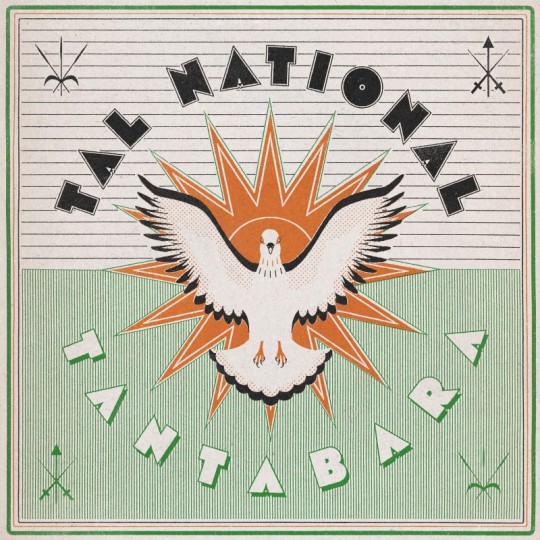
70. Tal National - Tantabara (FatCat)
Tantabara features the best singing on any Tal National album so far. From the long screaming notes of “Belles Reines” to the soft, lovely harmonies of “Duniya” and “Trankil”, each member of the band is given the opportunity to showcase his or her unique style and tone. Tal National is a collective, but let’s not forget the individuals that make up the great band who are now 3-for-3 over their past few records. The difference with this one is it makes them essential listening.
Read the rest of our review here.
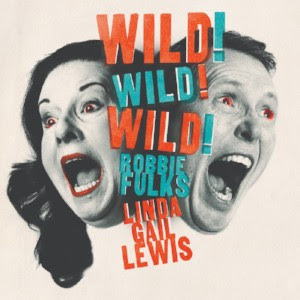
69. Robbie Fulks & Linda Gail Lewis - Wild! Wild! Wild! (Bloodshot)
We should be thankful that we have a document of a collaboration between Chicago folk hero Robbie Fulks and the legendary piano player and singer Linda Gail Lewis. Wild! Wild! Wild! is a collection of Fulks originals and covers. On each song, he leads the band and produces. The credits list is, as expected, insane, The Flat Five part of their backing band in addition to a ton of collaborators on individual tracks.
Read the rest of our review here.

68. Brigid Mae Power - The Two Worlds (Tompkins Square)
The Two Worlds–whether referring to pastoral beauty vs. raw anger, the present vs. the past, or something else–is an album for the #MeToo era in 2018. And not just because it’s a protest against toxic masculinity, but because it allows Power to embrace and celebrate her own artistry.
Read the rest of our review here.

67. Shannen Moser - I’ll Sing (Lame-O)
If any album took me by surprise this year, it was Shannen Moser’s country-tinged I’ll Sing. It feels timeless, a piece of folk for the current age that both borrows from the genre’s storied past and the more recent history of indie rock. “Every Town” paints a vivid picture of a backyard party and the wistfulness of the unknown. “West Texas Blues” sounds like it was recorded on the fly, a quick expulsion of emotion mid-road trip. Meanwhile, “Joanna”, “Trouble”, and “One for Mama” could be from another decade, covers of dusty songs from the canon. Yet, the songs are all Shannen. Her warm vocals and the melancholy of her lyrical portraits are what kept drawing me back, lines like “If I could feel something good, I would share with you/You know I would.” There’s a plaintiveness to each song, one that rolls through the album that’s only enhanced by the emotion Moser pours into each vocal performance. - Lauren Lederman

66. Stove - ‘s Favorite Friend (Exploding In Sound)
After a string of Stove EPs occupying the space left in the wake of Ovlov’s initial breakup, a new Stove release has come to feel like an unexpected gift. Beginning to play with drum machines and softer songwriting sensibilities across their previous records, ‘s Favorite Friend comes not as a bold new direction for Stove’s sound, but a refinement of it. Steve Hartlett and Jordyn Blakely have nailed a sound that departs almost completely from the Dinosaur Jr. fuzz soup we have come to expect from Ovlov, diving into more personal anecdotes and ballads, but not totally stripping away the punch Hartlett is capable of. “Liverwurst” encapsulates this perfectly, with its breezy acoustic riff and touching lyrics, leading way to a loud but orchestrated catharsis. “Duckling Fantasy” gives the listener a welcome foray into drummer Blakely playing frontman. Its frantic feeling and confidence solidify it as one of Stove’s briefest moments of brilliance to date. Overall, ‘s Favorite Friend displays that Stove is its own unique entity, capable of great variety and very effective songwriting. - Daniel Palella

65. Sons Of Kemet - Your Queen Is A Reptile (impulse!)
The title Your Queen Is A Reptile is a strong rebuke of the British monarchy’s mistreatment of black immigrants that gains even more political weight in context of Meghan Markle. But instead of making a protest record, Sons of Kemet shone a light on other queens throughout history–black women who have made a positive impact on society at large. With co-production by Dill Harris and features from performance poet Josh Idehen and Congo Natty, Your Queen Is A Reptile takes you on a journey through a wide variety of black stories and black music.
Read the rest of the review here.

64. Joey Purp - QUARTERTHING (self-released)
My real introduction to Joey Purp was his 2016 mixtape iiiDrops and his connection to his friends in the same scene like Noname and Chance The Rapper. What was so exciting about iiiDrops was Purp’s confidence, and QUARTERTHING not only feels like a step forward for the rapper but a leap into the spotlight. Joey Purp has arrived, confidence and flow surrounded by excellent production. “24k Gold/Sanctified” kicks off the album with a sense of joy and celebration, but lyrically, it recognizes that pull back to reality, the realism of the world and its violence, going from “I’m still alive!” to “I know we still alive / But I wake up to bullets flying.” That’s a theme throughout: the weight between celebration and survival, that pull between idealism and realism. “Elastic” reminds me of a grown-up sequel to “Girls@”, and the footwork-inspired beat of “Aw Sh*t!” is infectious. And while he’s more than capable of carrying out an album on his own, Purp finds some help from local names like Ravyn Lenae and Queen Key, but also a few more instantly recognizable names like both RZA and GZA. It’s a debut for an artist who’s been creating for years, but one that revels in its confidence and self-assured boldness. - LL

63. Foodman - Aru Otoko No Densetsu (Sun Ark)
Toying for years with the traditions of Chicago’s footwork scene, there has always been a sense of child-like playfulness conveyed in Foodman’s compositions. The Japanese artist’s rhythms stutter and juke in ways we have come to expect, but the sounds themselves are the artifice of a mind operating fully on a sense of wonder. On Aru Otoko No Densetsu, Foodman strips away what we expect from a dance record, or even a simple reduction thereof. What we are left with are percussive sounds surfacing, seemingly from toys and simple objects, mingling and slowly taking form--not with an end goal or rhythm in mind, but simply with the intent of play. Despite this, there is no feeling of lackluster or aimlessness--every bleep and hit on Aru Otoko No Densetsu explores what one can do when conventions and expectations are subverted. - DP

62. Years & Years - Palo Santo (Polydor)
Olly Alexander purported to release a concept pop album where gender and sexuality don’t exist and whose title was essentially a dick joke. On paper, Years & Years’ Palo Santo sounds like an ambitious album destined only to disappoint. In reality, it’s ambitious and impresses. The trio of Alexander, Mikey Goldsworthy, and Emre Türkmen have made a forward-thinking, percussive pop record about relationships that simply bangs. Whether Alexander is reflecting about a fling with a supposedly straight man or getting over being left, he’s dancing most of the time.
Read the rest of our review here.

61. Kississippi - Sunset Blush (Alcopop!)
If you managed to catch Kississippi live this year, you’ll likely have seen a full band surrounding Zoe Reynolds, but she alone writes the band’s songs. Sunset Blush sees Reynolds tapping into dreamier, poppier indie fare compared to her last EP, the moody We Have No Future, We’re All Doomed. The shift suits her. Her voice worked well with the starker, lo-fi feeling of that EP and is just as strong on her latest. “Easier to Love” feels lush with its synth-driven melody as Reynold’s voice wraps around the sound. That’s not to say the guitar-driven tracks are few or lacking here. “Cut Yr Teeth” finds strength in circling guitars and a realization in the lyrics: “The person you made yourself out to be / Would feel sorry for what you have done to me”. If Zoe had any nervousness about pivoting to more of a pop sound, Sunset Blush proves that Kississippi effortlessly made that move. - LL

60. Kraus - Path (Terrible)
Kraus’ Path is a triumphant effort of pushing sounds so deeply into the red that their proclamations are felt completely despite such careful shrouding. The Texas artist never felt quite a part of his hometown scene, and this isolation and yearning is felt in every blistering moment of Path. The slow, clean build of “Bum” gives way to an absolutely crushing wall of distortion, giving just enough headroom for Kraus’ adept and feverish drumming, as well as his mangled vocals, to cut through. It is all around a unique entry into both shoegaze and experimental music at large, showing what can be done with simple tools pushed to the point of breaking. The emotional quality of this record cannot be understated, even if it cannot be fully understood. - DP

59. Protomartyr - Consolation EP (Domino)
For a band as consistent as Protomartyr, destined to put out a new collection of movingly bleak post punk every couple years, it’s remarkable that an off-year EP would be just as good as a full-length. It’s even better that the EP offers something new for the band. Containing some of their best songs to date, Consolation, recorded by R. Ring’s Mike Montgomery and featuring Kelley Deal on two of its four tracks, is at times more sad and at times more hopeful than anything the band’s ever done.
Read the rest of our review here.

58. Now, Now - Saved (Trans)
Six years after the release of the atmospheric Threads, Now, Now returned with Saved, which shifted their sound to glossy, danceable tracks that still capture some of the desperate, emo bend of the band’s previous output. That’s not to say that a sense of desperation of heightened emotions detracts from Saved. On the contrary, the album encapsulates those seemingly unquenchable feelings of desire into demands (“I want it all” on standout “MJ”) and declarations (“Don’t you know I’m desperate for you?”), giving the synth-focused music an even more commanding presence. On lead single “SGL”, KC Dalager purrs, “Give in to me.” It’s easy to slip into the slick, desire-and-devotion fueled world of Saved, so let yourself in and enjoy the ride. - LL

57. drowse - Cold Air (The Flenser)
It is hard to not draw comparisons from Droswe’s Cold Air to Have A Nice Life’s reissued classic Deathconsciousness. Themes and feelings of loss and hopelessness are carried by crushing guitars, washed out vocals, and a penchant for doom and gloom. What Cold Air excels at, however, is making this sense of dread feel so personal and connected to the artist. Kyle Bates’ ability to make sonic cacophony convey such personal pain takes his efforts just as much into the realm of Mount Eeerie as it does Have a Nice Life. This isn’t romanticizing the apocalypse--this is a real and unguarded glimpse into the personal dread of one coming back from the brink of death. - DP
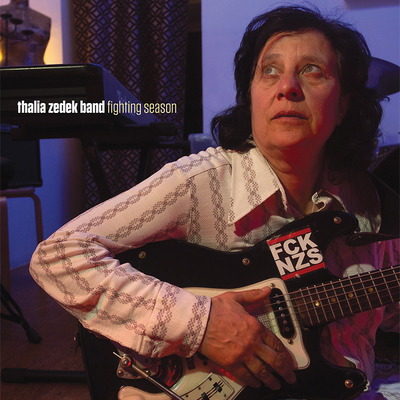
56. Thalia Zedek Band - Fighting Season (Thrill Jockey)
You can run, or you can hide. You can love, or you can fight. Or, you can do both sets of both, or all of them at once. Picking your battles–that’s what Thalia Zedek’s Fighting Season is all about. Today, the struggle we all share is balancing the personal and the political, and Zedek dives right in on her latest record. Written–you guessed it–in the wake of the 2016 U.S. presidential election, the album shows a woman whose voice is weary but whose instrumental chops are ready to battle.
Read the rest of our review here.
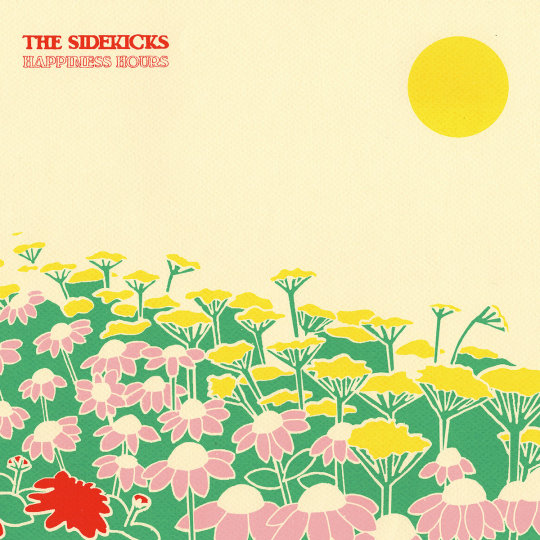
55. The Sidekicks - Happiness Hours (Epitaph)
If you’re a fan of The Sidekicks, you’re aware of the magic that awaits in each of their albums, the joy that radiates through the crowd at one of their shows. And if you’re not in the know, someone out there is ready to share with you the virtues of the Ohio band. Their fifth album Happiness Hours glimmers and shines like a Midwest summer. Bright guitars give each song a slick, competent indie rock sheen, one you’d want to blast while walking along a sun-drenched sidewalk. But within each song are lyrics that range from tongue-in-cheek to self-deprecating, juxtaposing so well with the bounce in the music. If you don’t know The Sidekicks, take this as your call to action: go give Happiness Hours a listen and then see how many times you catch yourself recommending it to someone else. - LL
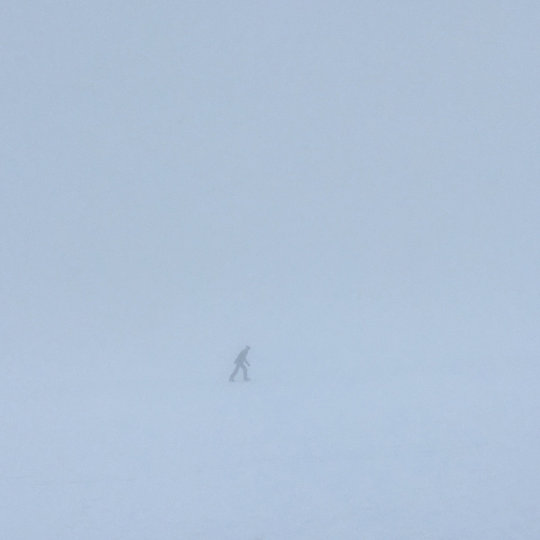
54. Skee Mask - Compro (Ilian Tape)
Similar to Objekt’s brilliant Cocoon Crush, Skee Mask’s Compro seeks to explore the intersection of dance music and ambient music. Unlike Objekt, however, Skee Mask does so by introducing and slowly unmasking more traditional forms. Break-beats and dance floor standards surface among more haunting sounds. Whereas Cocoon Crush swirls and unravels, Compro takes a veteran sensibility for rhythm and allows it to breathe and build, firmly but satisfyingly swaying between danceable cuts and soundscapes in a wholly refreshing manner. - JM

53. Olivia Chaney - Shelter (Nonesuch)
Singer, songwriter, and multi-instrumentalist Olivia Chaney takes traditional forms of music and standards and imbues them with the type of beauty that can come only from vulnerability and doubt. Shelter, her most recent album, is filled with moments, stories, and broader feelings of letting one’s guard down–whether that’s being open to embrace or being honest with yourself–and the benefits of doing so. “Bare weakness open / There hides strength,” Chaney sings on standout “IOU” over dobro riffs way bouncier compared to her normally downtempo material. That’s the essential idea behind Shelter, an album named after a word that’s got an increasingly negative connotation, whether to describe over-protection of kids or living in a sociopolitical bubble. The type of shelter Chaney sings about is a safe space where she’s supported, can admit to both her shortcomings and her “demons”, and ultimately thrive.
Read the rest of our review here.
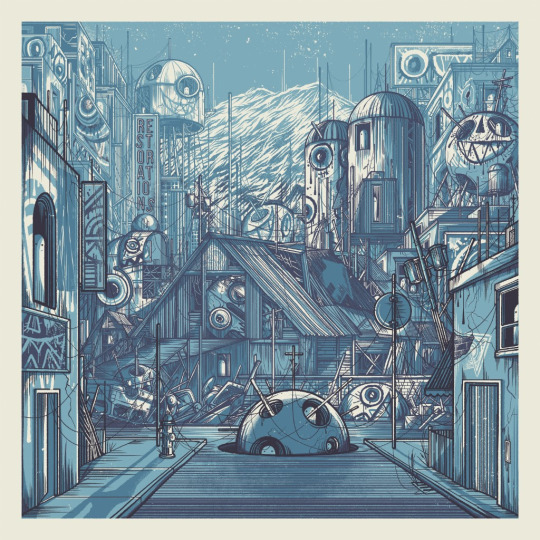
52. Restorations - LP5000 (Tiny Engines)
Year-end lists are a great way to encapsulate achievements from the last twelve months, but they’re also a great way to look back and revisit a specific time and place. A listen to Restorations’ cheekily titled LP5000, their first album since 2014, not only shows a band refining their sound but presenting us with a portrait of this year. Punk guitars and Jon Loudon’s tender, graveled voice shine throughout each track, leaving no wasted space in the album. For a short run time, Restorations has a lot to say. It’s a concise, muscular album that clocks in at just under 30 minutes, but Restorations doesn’t need much time to cover the way neighborhoods change and gentrify (”The Red Door”, “Caretaker”), the uncharted territory of suddenly being responsible for more than yourself (”Nonbeliever”), to calling out what so many of us think as we check our phones for the twentieth time in a day: “You’re taking a sip of your coffee / Glance at your phone and you mumble, ‘I hope he dies.’”
It’s an album that commiserates, that takes the time to pull up alongside you if you want to have a conversation or would rather shout along the lyrics, a shared catharsis either way. - LL

51. 공중도둑 (Mid-Air Thief) - 무너지기 (Crumbling) (Mid-Air Thief)
South Korean artist Mid-Air Thief is the musical enigma I never expected this year. Crumbling carries a sense of psychedelia so wondrous and un-forced that wistfully carries the listener through a joyous array of synthesizers and textures. Punctuated by acoustic guitars and soft vocals, this record drifts in ways and through spaces previously untouched. A mysterious release from a seemingly unknown artist, it lends itself to the same sense of wonder explored by many Japanese artists such as Cornelius and Fishmans. Here, however, this curiosity is not tethered by collage, but rather by careful and euphoric movement through moods and spaces, keeping its palette and scope refined but always tinkered with. - DP
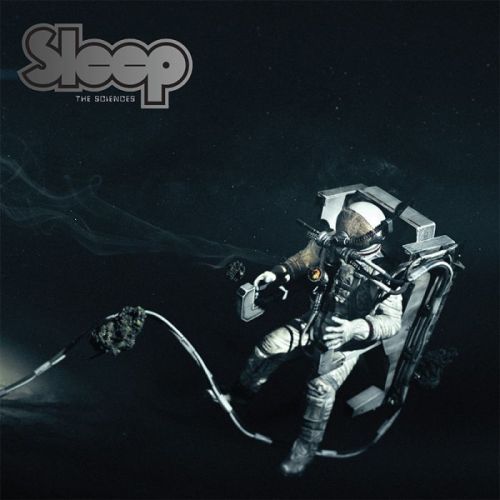
50. Sleep - The Sciences (Third Man)
Earlier this year, Sleep released The Sciences, their first new album in 15 years, comprised of some songs that were totally new and some that were written during the sessions for their opus Dopesmoker. But when and where Sleep tracks were born has become increasingly irrelevant since their songs thrive from losing a sense of time and place. They exist seemingly with no beginning or end. And so do the albums themselves.
Read the rest of our review here.
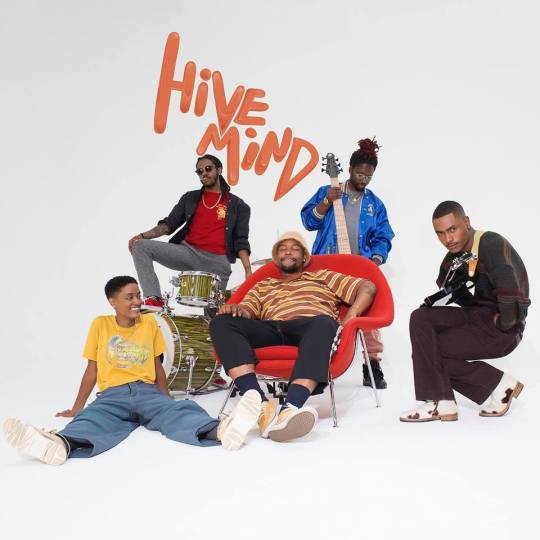
49. The Internet - Hive Mind (Columbia)
Hive Mind is their long-awaited follow-up to Ego Death, and it’s influenced by the aforementioned time away from home and newfound fame and acclaim. For one, Syd hands some singing duties over to Lacy. While previously, especially live, she seemed shy over the course of a full album or show, here, she takes full advantage of the songs she sings, showing off a shiny swagger. Both Syd and Lacy hand over production lead to Christopher Allan Smith. What results is a great album because everyone sounds fresh. The band is wise without being weathered.
Read the rest of our review here.

48. Marisa Anderson - Cloud Corner (Thrill Jockey)
Marisa Anderson’s Thrill Jockey debut Cloud Corner reminds me of something Red River Dialect’s David Morris said to me earlier this year: “Relaxation is a form of growing.” Inspired less by the nihilist expanse of Ennio Morricone scores and more by the necessary buoyancy of Tuareg desert blues, Cloud Corner acts not just as a safety net for Anderson but replenishment during a time of political chaos.
Read the rest of our review here.
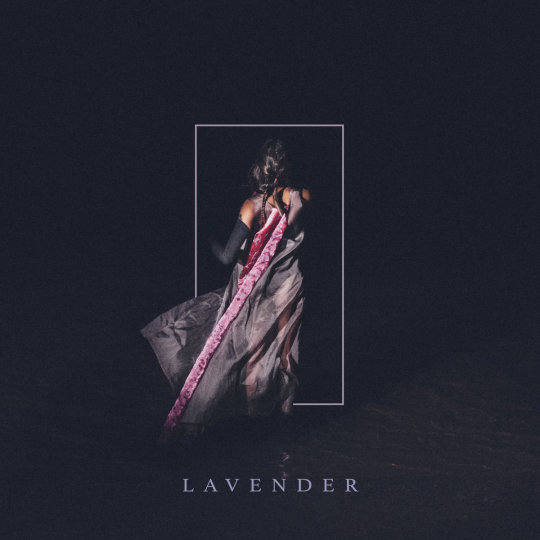
47. Half Waif - Lavender (Cascine)
Listening to Lavender, the new album by Half Waif, it’s hard to believe the album is less than 40 minutes long. A bold, maximal, exhausting, and ultimately brilliant affair, Lavender was created by Nandi Rose Plunkett, Adan Carlo, and Zack Levine, all at one point in Pinegrove. Plunkett’s voice and lyrics are centerfold. The album’s title refers to lavender that her grandmother, 95 years old at the time the album was written (and now deceased), would pick and boil. Naturally, the album’s about aging and collapse–of people, of relationships, of the United States of America.
Read the rest of our review here.
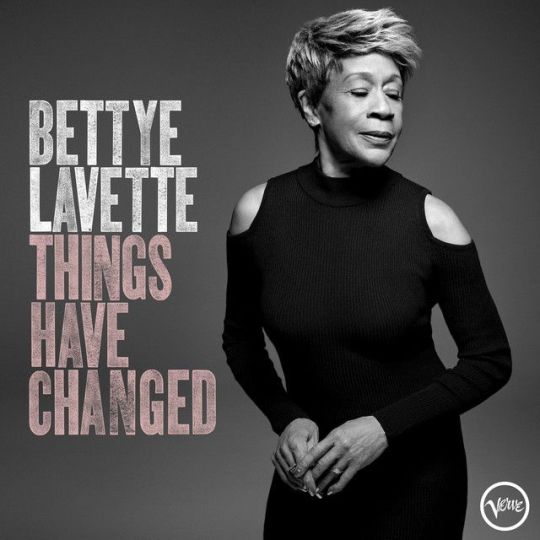
46. Bettye Lavette - Things Have Changed (Verve)
On Things Have Changed, LaVette doesn’t just cover lesser-known songs. She covers some of Dylan’s arguably weakest material and makes it her own. Appearances by Keith Richards and Trombone Shorty don’t matter. This album is all LaVette.
Read the rest of our review here.

45. Parquet Courts - Wide Awake! (Rough Trade)
A punk album you can dance to: It’s not a novel idea or even always a good one, but Parquet Courts have made that and more with their latest Wide Awake! With none other than Danger Mouse producing, the band has made a spiritual if not entirely aesthetic sibling to albums like There’s A Riot Goin’ On and Maggot Brain, one that combines their usual biting, witty, and respectful social commentary with heartfelt personal stories. It’s their greatest achievement yet.
Read the rest of our review here.

44. Ruston Kelly - Dying Star (Rounder)
“How the hell do I return to normal / If I'm always ending up flat on my back?”
Ruston Kelly has been through hell, and Dying Star is his document of that time, from overdose to his “return to normal.” For someone who’s made a career out of writing songs for other artists, Dying Star is Kelly’s most focused and refined effort so far, offering sharply painted portraits of addiction and heartbreak. It’s the album of an artist who has been to the brink and stared down the options on either side of a thin line.
Inspired by outlaw lyricists, there is no charm in Kelly’s depictions of drug use and the destruction that so often follows, but there is emotion deep in each track, and even humor (see “Faceplant”). A masterful storyteller, Kelly’s album ultimately celebrates survival and the emergence of a songwriter exorcising his own demons. And if that wasn’t enough to get you to listen, Kelly shows off his figure skating skills (yes, really, he once trained in the sport) in the video for the haunting “Son of a Highway Daughter”. - LL

43. Damien Jurado - The Horizon Just Laughed (Secretly Canadian)
The horizon laughs at Damien Jurado on a song where he illustrates a time he considered ending his life. “The clock is a murderer / My time is her burden,” he sings on the incredible “The Last Great Washington State” on his gorgeous The Horizon Just Laughed. It’s true–everybody dies. But Jurado wants to be there for his own death. “What good is living if you can’t write your ending?” he sings. A move from the Pacific Northwest to California has stirred up a lot in Jurado’s mind while simultaneously spurring some of the breeziest Laurel Canyon or 70s AM radio pop he’s ever made.
Read the rest of our review here.

42. Bonny Doon - Longwave (Woodsist)
The songs of Longwave are heartfelt but lighthearted. There is a personal and relatable touch that accompanies it’s 10 track tenure. “A Lotta Things” explores of sense of personal shortcoming, a desire to shirk one’s responsibilities and expectations. But it is held together by an almost sarcastic quality that keeps it from veering into overtly moody territory (“I’m faking my own death, so I can get some rest”). “I Am Here (I Am Alive)” borrows from David Berman’s sonic frontier while maintaining its own sense of brooding and listlessness. “Where Do You Go?” captures and grounds this listlessness with more anecdotes of youthful daydreaming. The way Longwave winds down with a slowed down version of “Try to Be”’s playful riff is a fitting closer to an album whose aim seems to be to wander. - DP
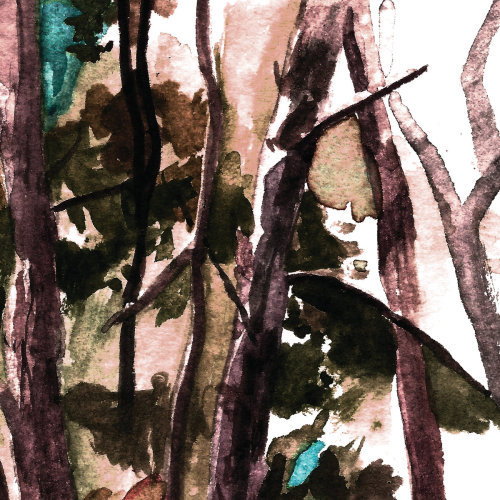
41. Hop Along - Bark Your Head Off, Dog (Saddle Creek)
Listening to Bark Your Head Off, Dog, the incredible new album from Hop Along, I can’t help but wonder how in the hell lead singer Frances Quinlan has the time to think about all she does. Like all of us in this day and age, she wrestles with the idea that even though everyone dies, it’s important to have empathy for those with a harder road to the eventual endpoint. But that’s not where Quinlan’s mind stops. As everyone else broadly analyzes the tale of Cain and Abel, she wonders what their childhood relationship was like. As everyone is aghast at the state of Arkansas rushing lethal injections before the drug reaches its expiration date, Quinlan thinks about the vacation of the judge who presided over the decision. As a songwriter, she’s able to focus on individual events as representative of something larger. Her illustration of her formative experiences causes her to reflect on those of others, and likewise, us on our own.
Read the rest of our review here.
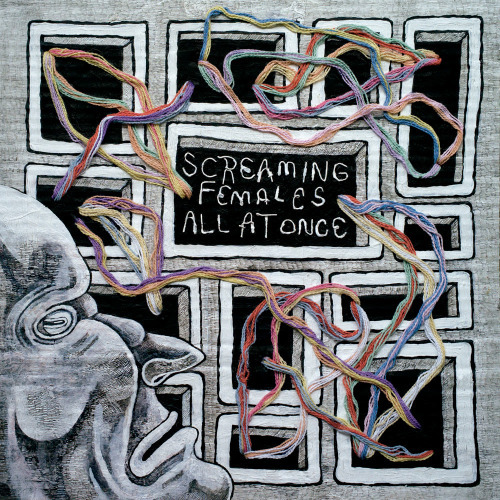
40. Screaming Females - All At Once (Don Giovanni)
I never would have seen All At Once coming from Screaming Females. Three years ago, they traded the Steve Albini-produced punk of Ugly for the Matt Bayles-addled plodding sludge of Rose Mountain. The results were predictable. However, working again with Bayles, generally more known for his work on post-rock, post-hardcore, and metalcore albums, has provided the band to establish a flourishing relationship with the producer. Marissa Paternoster and company have made an album that’s the perfect sonic manifestation of her anxieties and obsessions, each song essential and traversing a different style.
Read the rest of our review here.
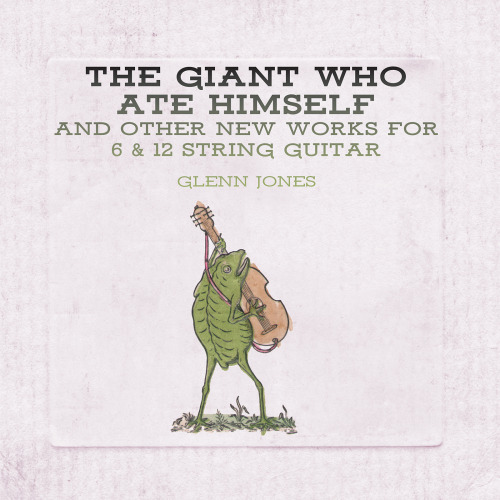
39. Glenn Jones - The Giant Who Ate Himself and Other New Works for 6 & 12 String Guitar (Thrill Jockey)
Glenn Jones communicates through his guitar, and never more so than on The Giant Who Ate Himself and Other New Works for 6 & 12 String Guitar. Recorded in New Jersey with Laura Baird and engineer Matthew Avezado, it’s an album that’s at times buoyant and at times melancholy but always transparent. Jones’ strings vibrate on the opening title track, alternating between major and minor chords. The instrument and the medium is just as important as the stories themselves. The arpeggio guitar lines with Flamenco flourishes on “Everything Ends”, the dissonance of the swaying “The Was and The Is”, the blues picking of “Even the Snout and the Tail”–for much of the record, Jones is coming up with contemporary standards.
Read the rest of our review here.
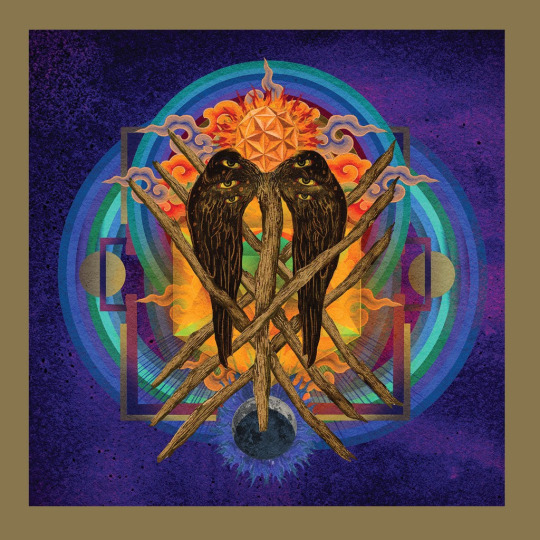
38. YOB - Our Raw Heart (Relapse)
YOB lead singer Mike Scheidt suffered an intestinal disease that threatened his very presence on this earth, let alone during the making of the band’s new album Our Raw Heart. Hearing the album, you’d think it was recorded after recovery when Scheidt was so thankful to be alive he couldn’t help but shout to the heavens. That it was recorded during his time of turmoil only makes the record more life affirming.
Read the rest of our review here.
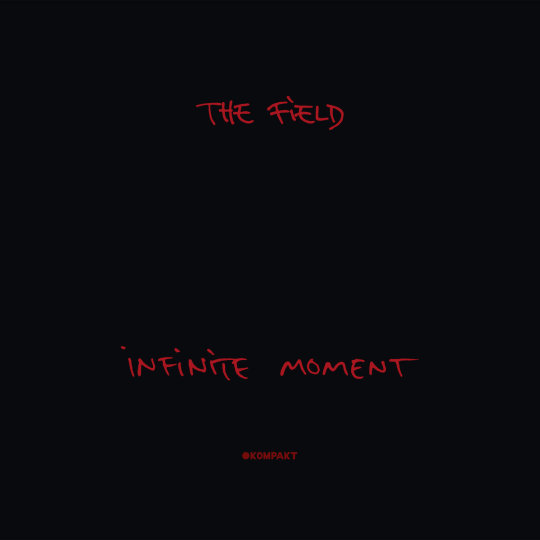
37. The Field - Infinite Moment (Kompakt)
I was lucky enough to see German producer The Field perform 2 months ago. A night of house music and friends was a well needed break from the scenes I typically find myself in. I recall an energy in the room, a sort of joy typically found on the dancefloor. When The Field began his set, the eerie, distant vocals of “Made of Steel. Made of Stone” might have brought this energy to a halt. But the moodiness of these infinitely stretched notes took the energy of the room and seemed to crystalize it. Infinite Moment could not be a more apt title for this record--I saw its captivating hypnosis take effect on a room full of club-goers. The dancing didn’t cease; it just felt suspended in time. Throughout his set and throughout Infinite Moment, there is a persistent feeling of moodiness, an intangible emotion that is preserved indefinitely, reverberating through the record’s 65 minutes. It’s a worthwhile journey, and one that asks the listener to surrender to peace. - DP
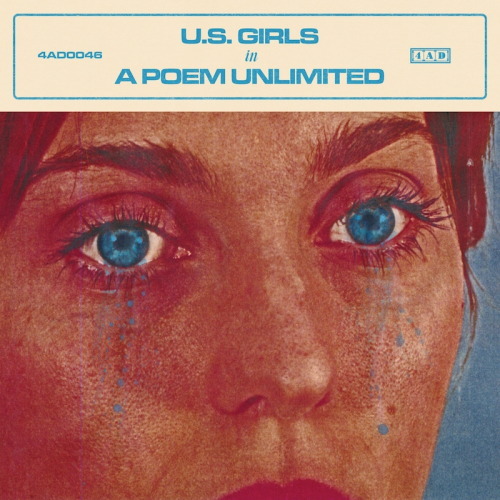
36. U.S. Girls - In A Poem Unlimited (4AD)
The 6th album from musician Meghan Remy as U.S. Girls is a self-described protest, like lots of her other work, but it’s an unlikely funky one. On In A Poem Unlimited, the experimental pop artist recorded with a live band and worked with co-producer Steve Chahley (Neko Case) to make a record that takes just as much from Parliament/Funkadelic and Sly & The Family Stone as it does art rock, tackling the power of patriarchal institutions and lauding the women fighting for some share of the power. But it also notably sympathizes with the everyday struggles women experience without wallowing, using its instrumentation as a celebration for a changing moment in time. It’s fitting that In A Poem Unlimited came out right after so many powerful men have finally faced the consequences of their actions because it dares to be joyous despite all reasons for despair.
Read the rest of our review here.

35. Let’s Eat Grandma - I’m All Ears (Transgressive)
I can’t help but think that the vitriol over the band name Let’s Eat Grandma has had a little to do with the fact that the music comes from two teenage girls. Sure, to some, the band name is the type of phrase that’s often followed with “that should be a band name,” but a simple Google search reveals that the phrase is often used as an example of why commas are important. It’s a tongue-in-cheek move made by the duo of Jenny Hollingworth and Rosa Walton, who have followed up their debut I, Gemini with I’m All Ears, an assured album of “experimental sludge pop”. Despite amazing production from Faris Badwan, SOPHIE, and David Wrench, the album is undeniably the duo’s. Its sequencing is perhaps the best of any album all year–it gets better as it goes along. The album itself follows many of its best songs; it starts cautiously and becomes ominous. And it couldn’t have been made by anybody but these two girls.
Read the rest of our review here.
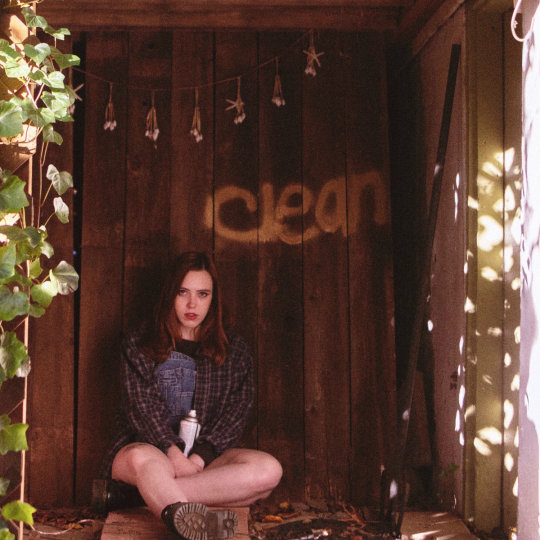
34. Soccer Mommy - Clean (Fat Possum)
Sophie Allison’s debut Clean wraps you up in its world completely, with both its lyrics and warm guitar tones. It’s an album filled with anecdotes that feel personal and universal, the reflections and musings of a young woman navigating relationships of all kinds. It’s revelatory and familiar, soft and angular. Take the opening images of “Still Clean” and the way Allison positions dipping a bloody maw into clear water. Lyrically, the album vacillates between ”I don’t want to be your fucking dog” and “I wanna be the one who makes your stomach tied”, but it doesn’t reflect indecision. Rather, Allison captures what so many of us know so well, whether we’re in our early twenties or beyond: Our desires and relationships are never so simple, but always valid. There’s never a clear answer to the why of it all, but the album’s centerpiece, “Scorpio Rising”, seems to settle on the idea that experience and the chaos that is the universe and genetics might help explain some of it away: “And I’m just a victim of changing planets / My Scorpio rising and my parents.” That this is Soccer Mommy’s official debut can only bode well for the musician’s future output. - LL

33. Culture Abuse - Bay Dream (Epitaph)
Culture Abuse aren’t just a band. They’re a community, they’re on a mission, and their live shows are raucous indoctrinations into their world. Like their Bandcamp bio says, they’re definitely a good time, and Bay Dream’s sunniness feels like a drive down a coastal highway with salt-sprayed air flowing through open windows.
A little less aggressive than their debut Peach, Bay Dream comes in with a stoned, fuzzy optimism that ripples through each track. A song like “Bee Kind to the Bugs” might not work if frontman David Kelling and the rest of the band weren’t so damn earnest. A lyric like “S'why I like you around /' Cause you make me feel good” might not land without a hook, but Culture Abuse’s confidence shines. It’s an album I found myself turning to throughout the year, one that added a little bounce and ray of joy to a monotonous commute or even another rough news day. While Peach was an introduction to the world of Culture Abuse, Bay Dream feels more like is its manifesto. - LL

32. Playboi Carti - Die Lit (AWGE/Interscope)
2 years ago, before Playboi Carti’s debut commercial release, there existed only a small string of Soundcloud tracks to his name. There was an insatiable desire from fans to hear more; I recall playing “Broke Boi” on near-constant repeat. Its simple, airy beat and unending barrage of ad-libs, broken up only by a simple refrain, was so effective and perfect. Carti plays to these strengths--simplicity, energy, and raw confidence, paired with perfectly complementary beat selection--on Die Lit. Much of the production is handled by frequent collaborator P’ierre Bourne, who’s refreshing take on modern rap production has been making huge waves in the past couple years. The most important quality of Die Lit, though, is its completely unrelenting momentum. The beats are unendingly fun, and when Carti is done playing with a track, it moves right forward to more of the same sugar-high. Its frequent comparisons to punk are apt but reductive--the energy and ethos are there, but what Carti accomplishes on Die Lit is unique and a welcome entry in one of the strangest years for hip hop in awhile. Between its never ending joy and a long list of rap’s finest collaborators, Die Lit does so much with such simple terms. - DP
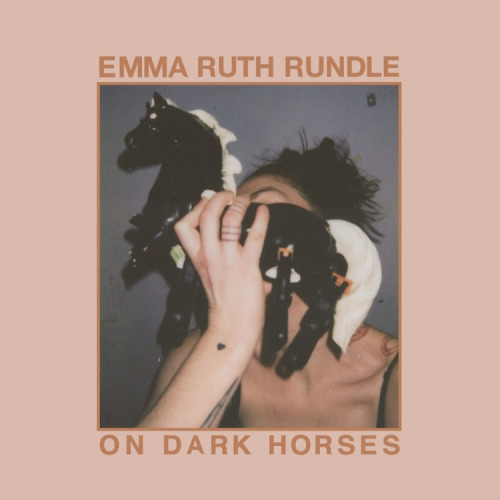
31. Emma Ruth Rundle - On Dark Horses (Sargent House)
To say that misery makes great art is all too fetishistic. Emma Ruth Rundle has made an incredible album about love, creativity, pain, and trauma all at once. Inspired by everything from her past experiences with substance abuse to her move to Louisville and musical and life partnership with Jaye Jayle’s Evan Patterson, Rundle and her collaborators (Patterson, bassist Todd Cook, drummer Dylan Nadon, recording artist Kevin Ratterman) turned On Dark Horses, her third studio album, into a crash, burn, and come out stronger emotional affair. They thrust you in the middle of her head-space on “Fever Dreams”, its bluesy, creepy guitars, keys, and drums starting like the song’s been going on for hours. “Release me away from fever dreams,” Rundle asks, knowing full well her confusion will not subside, as the song slows down in the middle to allow space for swirling, noisy, psychedelic riffs.
Read the rest of our review here.
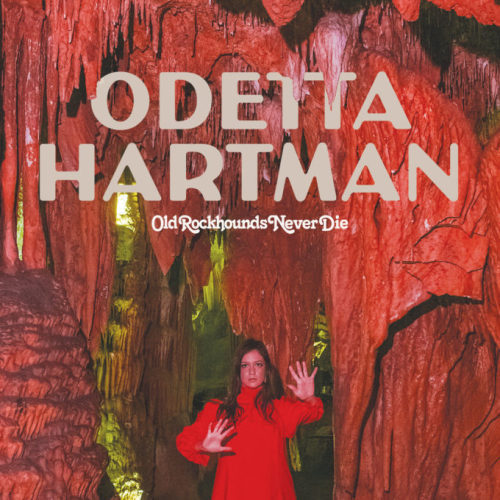
30. Odetta Hartman - Old Rockhounds Never Die (Memphis Industries/Northern Spy)
Produced by her partner Jack Inslee, who combines beats and field recordings to give Hartman’s tales a sense of space, time, and place, Rockhounds is an album of clear, disparate elements that somehow combine beautifully. I’m not talking about the mere echo on the banjos of the opening track. More like the electronic percussion and static of “Cowboy Song” mirroring her foggy memories of riding a train from San Francisco to Chicago with a real cowboy, remembering his tales of people he met. It’s the unexpected dissonant violins and vocal entrances of the whispered “Widow’s Peak”, originally a studio mistake but resulting in a sense of spontaneity. Or the drifting instrumental autoharp interlude of “Auto”, the stainless steel bowl instrumental “Freedom”, even the electronic beat of “Sweet Teeth” that couldn’t be aesthetically further from the limber banjo picking.
Read the rest of our review here.

29. Mint Field - Pasar de las Luces (Innovative Leisure)
Sure, Pasar De Las Luces is ripe to be described as ethereal, nostalgic, Interpol-meets-Low–whatever. That’s all true. But a track like “Club de Chicas” separates them from the standard descriptors, starting slow with an echo on the snare and building up to a high-speed pop chase and exhaling back to stasis. In a sense, Pasar De Las Luces–translated to “Passing Through the Lights”–is really an album that encapsulates constant movement and texture, always advancing, always there.
Read the rest of our review here.

28. Wild Pink - Yolk in the Fur (Tiny Engines)
You know Yolk in the Fur is going to be unlike anything Wild Pink has ever made from the first breathy synthesizers. “Burger Hill” is a shift in aesthetic for the Brooklyn band who makes some sort of variation on heartland rock. What remains is their specificity, the sense of time and place that an equally expansive band like The War On Drugs only has on one or two songs. Singer John Ross, looking down, describes the setting as being in a “prenatal snow globe.” The image is layered and loaded–a scene in a life, neatly packaged and edited before it even starts. Throughout Yolk in the Fur, it seems like Ross no longer needs to make snow globes out of things that are infinite. “I woke up too fast from a dream,” he sings later on “Burger Hill”, starting his journey to accept the boundlessness of life.
Read the rest of our review here.

27. The Beths - Future Me Hates Me (Carpark)
You might think an album called Future Me Hates Me would be sadsack and self-aggrandizing. But like the title track from which it takes its name, it’s instead a tongue-in-cheek look at contemporary relationship anxiety. It also knows when to turn the sincerity on and off. New Zealand’s The Beths, jazz-trained musicians who play crunchy guitar pop punk, have delivered an instrumentally explosive and confident debut filled with harmonies, hooks, and feeling.
Read the rest of our review here.
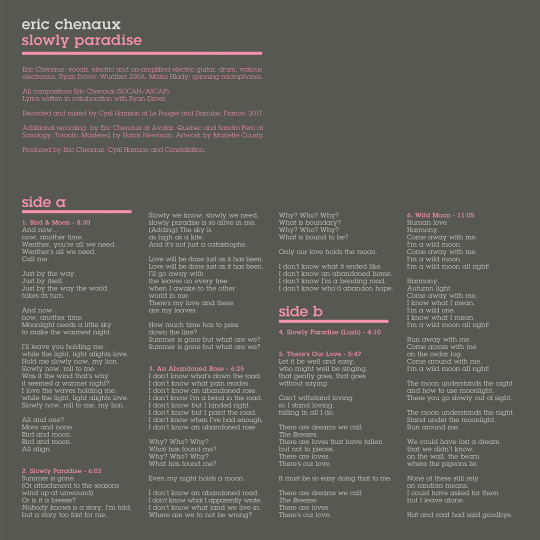
26. Eric Chenaux - Slowly Paradise (Constellation)
Paris-via-Canada guitarist Eric Chenaux has given us his most confident, at ease, and best record with Slowly Paradise. Usually solitary, this time around, Chenaux teamed up with Ryan Driver to write the lyrics that sit atop his gorgeous compositions. He recorded it with Cyril Harrison behind the boards (Sandro Perri is credited with engineering work), and the results are as cohesive as they are adventurous.
Read the rest of our review here.

25. Eli Keszler - Stadium (Shelter Press)
The tone and melody of the synthesizers on “The Driver Stops”, a standout track from Eli Keszler’s latest album Stadium, recalls a film noir or mystery. That’s funny, because Keszler’s sonics cause similar quizzical reactions. Even if there’s a video of him playing it all live, Stadium yields the most “How did he do that?”s per minute. He plays his instruments live but uses Sensory Percussion drum software, and so the balance between control and randomness is vulnerable and ambiguous. Nonetheless, he’s managed to create a cohesive album of sounds inspired by his move to Manhattan--lots of randomness, little control--and specifically his East Village apartment. Some of the tracks, like “Measurement Doesn’t Change the System at All” and “Flying Floor for U.S. Airways”, feature buoyant jazzy snare rolls and ripples of one-off high-pitched synthesizer tone, anchored only by perhaps a steady bass line. No matter what, there’s always anxiety. Queasy Mellotron pervades “Lotus Awnings”, and the relentless plinking on “Which Swarms Around It” render the calming cymbals neutralized. Stadium is ironically named--it’s the huge soundtrack for living alone, together, for city commutes and unit isolation, where you do your best to drown out the noise but ultimately accept its inevitability. - Jordan Mainzer
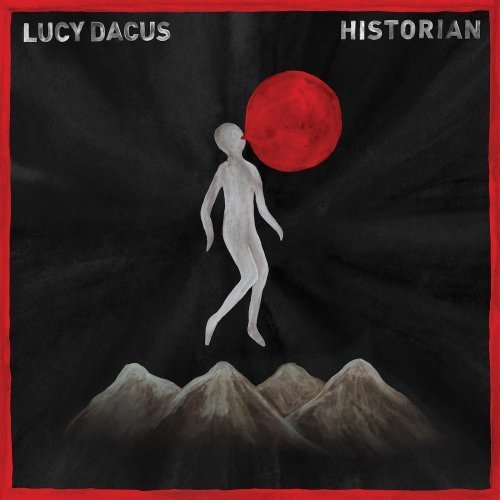
24. Lucy Dacus - Historian (Matador)
“The first time I tasted somebody else’s spit, I had a coughing fit,” begins Lucy Dacus’ great new album Historian. You assume she’s talking about a first kiss only until the next line: “I mistakenly called them by your name.” It sets up an album that messes with your interpretation of time and space, about everything from her breakup with the abusive former bassist of her band, the death of her grandmother, and the loss of her Christian identity. Dacus, in preparation for a new record more ambitious in scope than her debut No Burden (1 track but 12 minutes longer) read epic novels. You can hear it in the complexity of the instrumentation, like on the 7-minute “Pillars of Truth”, and in the constant change of point of view or addressee. Sometimes, as on “Addictions”, she talks to herself. Other times, she chastises or admires others. The whole record is, to an extent, funny and self-deprecating. It’s mostly self-aware.
Read the rest of our review here.
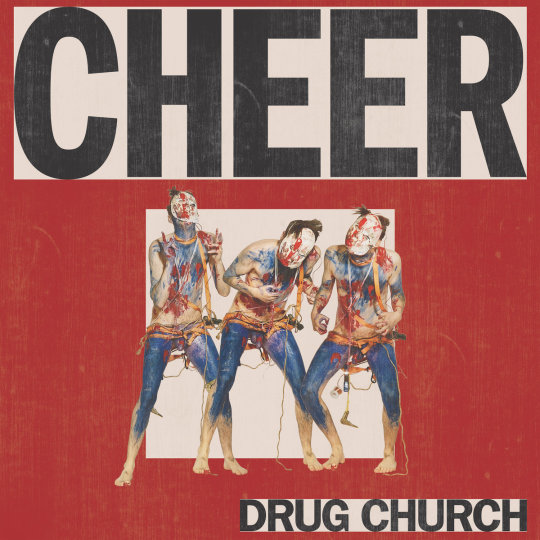
23. Drug Church - Cheer (Pure Noise)
"At least there’s some self in self-destruction,” vocalist Patrick Kindlon sings on “Foam Pit”, one of many songs on Drug Church’s Cheer that chides corporatism and individualism. Like the best songs from Pissed Jeans or KEN Mode, Cheer is a self-hating, sarcastic, satirical take on the fragile masculinity present in both the economically oppressed and the oppressor. Opener “Grubby” hilariously decries both adult male children and the scumbags with “handshakes and lies” in their pockets. “There’s a guy with a search history darker than a sea trench,” Kindlon sings on “Unlicensed Hall Monitor”, the title character a perfect metaphor for undeserved power tripping. Sure, Kindlon shows some sympathy--the twinkling “Strong References” recalls his experience being pushed to uncomfortable situations as a male model, and “Weed Pin” is call to increase the minimum wage--but for the most part, the chugging hardcore punk perfectly complements the bratty nature of the subjects he inherits. “If you live long enough, you’ll do something wrong enough,” he sings on “Unlicensed Guidance Counselor” before describing crimes that, well, most people don’t commit. “Conflict Minded”’s illustration of selfishness, while on the surface level exaggerated, hits close to home. “Leave your Sentra in the tow lane / Take off from your brother’s wedding / Pull the plug on mom days early / This is your window, don’t you blow it,” Kindlon chants. If you don’t have that guy in your family or aren’t perpetually ashamed by narcissists in positions of power, Drug Church make it at least easy to empathize with their victims. - JM

22. Eartheater - IRISIRI (PAN)
What makes us human, and what makes us individuals? These admittedly unanswerable questions are at the center of IRISIRI, the third album for Queens-based multi-instrumentalist/vocalist Alexandra Drewchin as Eartheater. On the record, Drewchin combines voice--both her three-octave chords, live guests, and sampled chatter from humans--with electronics, to blur the lines between technology and the self. Despite her vocal talents, much of Drewchin’s singing is less stunningly operatic or beautiful and more imperfect and at times cacophonous, contrasting the beatific harp strumming on “Peripheral” and the bouncing hip-hop beat on “Inkling”. But despite who’s voice is at the helm, Drewchin’s lyrical wordplay furthers her aims. “OS In Vitro” juxtaposes “computer” with “you can’t compute her,” while on video-only release “Claustra”, Drewchin alternates between “the owning of my loneliness” and “the end of the loaning of my onliness,” cementing a non-ideal state like being alone as the more personal aim than the ideal companionship. Appropriately, despite star turns from Odwalla1221′s Chloe Maratta and the ever-dominant Moor Mother, IRISIRI is unequivocally Drewchin’s statement of self. “Nobody’s looking” repeats a collection of ambiguous, pitch-shifted voices on “Slyly Child”. But for Drewchin, it doesn’t matter who looks or who doesn’t. She’s there; are you willing to listen? -JM

21. Makaya McCraven - Universal Beings (International Anthem)
Universal Beings opens with chatter. Usually, on an album it’s a gimmick, a thematically forced insertion of a document of capital “a” Artists at work. “A Queen’s Intro”, however, is crowd talk before a performance, introducing the various levels of dialogue at work within Makaya McCraven’s defining album to date. The band players–in this case, cellist Tomeka Reid, bassist Dezron Douglas, vibraphonist Joel Ross, and harpist Brandee Younger–are in collaboration, improvising off of each other. There’s also a level of interaction between band and audience, though, and it’s a fitting introduction to an album that McCraven wished to break down barriers between “scenes” that can often be too academic, insular, and exclusive, whether in terms of social status, class, race, or gender. Launching into a decidedly old school hip hop beat and removing yet another barrier–genre–McCraven and company are ready to go to work.
Read the rest of our review here.
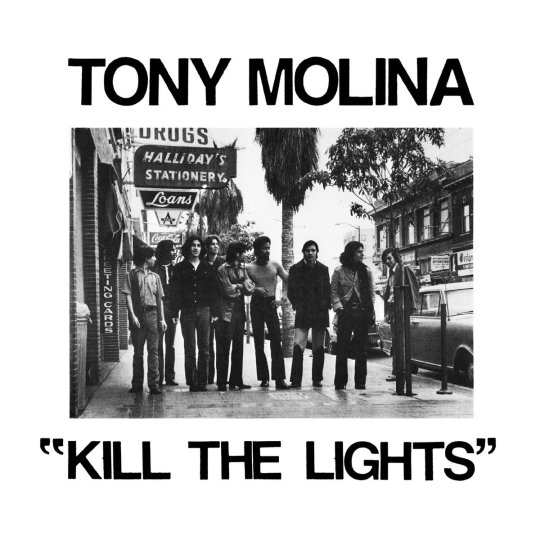
20. Tony Molina - Kill The Lights (Slumberland)
Got a 20 minute commute but still want to listen to a full album? Like power pop? Kill The Lights is for you. Tony Molina’s latest is not just a collection of fantastic spurts of ideas. I haven’t heard an album with this much emotion and style conveyed in such little time since Joyce Manor’s Never Hungover Again. The influences are all over the board--Molina favorite The Beatles on “Now That She’s Gone” and “When She Leaves”, jangly college rock on the melancholy “Give He Take You”, Nico’s “These Days” on the fingerpicked “Wrong Town”--but it’s the combination of the concision of Guided By Voices and the sweets of Big Star that makes Kill The Lights sound so classic. On “Look Inside Your Mind/Losin’ Touch”, Molina crams in two songs, organ-led pop to folk, with a guitar solo and piano outro to boot. The final track, the instrumental “Outro”, combines country-esque twang with baroque piano pop. You can’t help but wonder that if Molina packs this much in a 14 minute opus, does he have an epic in him? But then you realize that Kill The Lights is perfect as is. - JM

19. Laurel Halo - Raw Silk Uncut Wood (Latency)
A departure from previous efforts for the revered Hyperdub label, Raw Silk Uncut Wood is somehow more grounded than Laurel Halo’s dancefloor cuts. This comes through both in instrumentation from Oliver Coates and Eli Kezsler (previous collaborator and uniquely frantic percussion virtuoso), but also in the path these pieces take.These tracks are unfractured, moving forward and building in ways that are both calming and fulfilling. Raw Silk Uncut Wood is a record built upon a generous amount of space, allowing Halo’s excellent sense of texture and composition to take the reins. - DP

18. Rival Consoles - Persona (Erased Tapes)
The new album from Rival Consoles, Persona, is purportedly inspired by Ingmar Bergman’s film of the same name, but such context is not necessary. Persona is very much an album to experience in the present moment. Its use of analogue-heavy synthesizers, acoustic and electric instruments, and effects pedals toy with perception, space, light, and darkness. In listening to it, you experience emotions ranging from melancholy to joy, and for that, it’s complex in its parts but simple in its sum.
Read the rest of our review here.
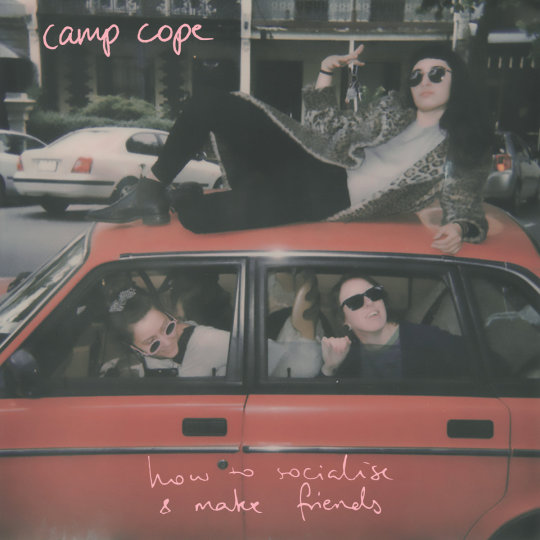
17. Camp Cope - How to Socialise & Make Friends (Run for Cover)
With anger, earth-shattering power, and empathy, Camp Cope decry selfish and self-obsessed men, call out sexism in the music industry, and lift each other up--and that’s just in Track 1. “The Opener” is lead singer Georgia “Maq” McDonald’s simultaneous look back on her former relationship with The Smith Street Band��s Wil Wagner, who always tried to one-up her with his laments, and her rallying cry for inclusion. “It’s another man telling us we’re missing a frequency / Show ‘em, Kelly!” Maq screams, inviting bassist Kelly-Dawn Hellmrich to show off her bass chops, bucking tradition for something slinkier, rawer, and better. Recorded in 2.5 days, Camp Cope’s How to Socialise & Make Friends is a melancholic, yet inspiring statement of female empowerment and togetherness. “The Face of God” is Maq’s tale of sexual assault that illustrates a thought process all-too-common among victims, unforgivably due to a culture of toxic masculinity: It can’t be, his music is too good. Ultimately, the band do their part to combat it--“Your voice is loud in my goddamn head, boy,” Maq sings on “Animal & Real”--but also find a common humanity in good people, in the man filling a gas tank on Christmas day, in Maq’s mother who doesn’t like her tattoos, and in her late father who died from complications from prostate cancer. The last story is told on acoustic tearjerker closer “I’ve Got You”. “I’ve got you / You’ve got me, too,” Maq declares to her father, but also to anyone who supports her and each other. - JM

16. Petal - Magic Gone (Run for Cover)
Honesty is a word and a concept we seem to throw around these days, but it can save your life. Magic Gone documents a moment for Kiley Lotz, the artist behind Petal, where coming to terms with her own queerness and mental health comes to a head. But it’s that release, that moment of honesty and acceptance, that can change everything for the better, that can mean survival. “Will they love me if I am honest?” Lotz asks on “Carve”. It’s not just a document of a moment of reckoning for Lotz, but further cements Petal as a songwriter with a knack for poetry in lyrics and gentle, sometimes stark instrumentation that builds a world for those words to live. Take album closer “Stardust”, which begins with a sole, lilting piano that frames Kiley’s clear voice as the song builds. Though the song deals with the strangeness of falling out of love, there’s a sense of hope in the way the final line “I can’t say I didn’t love you,” repeats as guitars crash, only to give way to that same lone piano. - LL
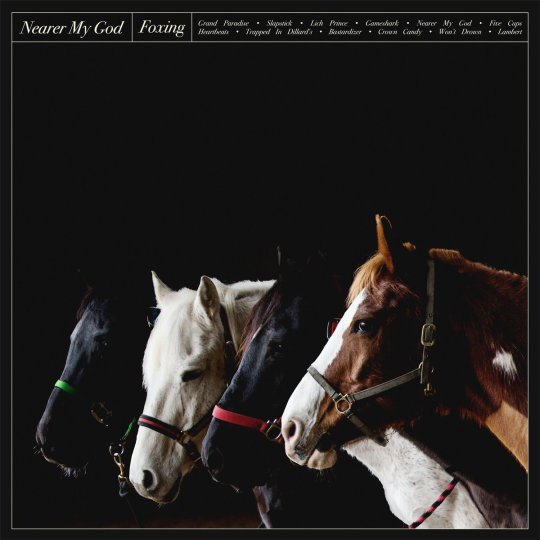
15. Foxing - Nearer My God (Triple Crown)
Foxing has always been able to distill that apocalyptic feeling into their music, taking moments that seem small on the outside and making them monumental. Nearer My God is an expansion on the same idea. Named for the hymn that also soundtracks the dystopian doomsday video CNN was set to play at the literal end of the world, Foxing seem to take everything they can grab and push the limits of just how much one album can hold while not only remaining cohesive but remaining so purely Foxing, too. To simply call it ambitious feels like an understatement.
First single “Slapstick” eased listeners into this new soundscape, offering an approachable and familiar sound, horns coming in towards the end, always a highlight to a live show. But you can find almost every genre within the tracks of the album: Conor Murphy’s R&B-tinged falsetto on multiple tracks, near trap beats, the proggy chaos of “Gameshark”, the absolute shredding guitar solo in “Lich Prince”, and the wait-are-those-bagpipes?-yes-those-are-bagpipes climax of “Bastardizer”. That’s just a start, and to dive into the lyrics of the album would take much more space than this review.
Ever evolving, Foxing has made a statement with Nearer My God, taking the raw emotion fans know and stretching it with finesse. The apocalypse never sounded so foreboding, so danceable, and so damn good. - LL
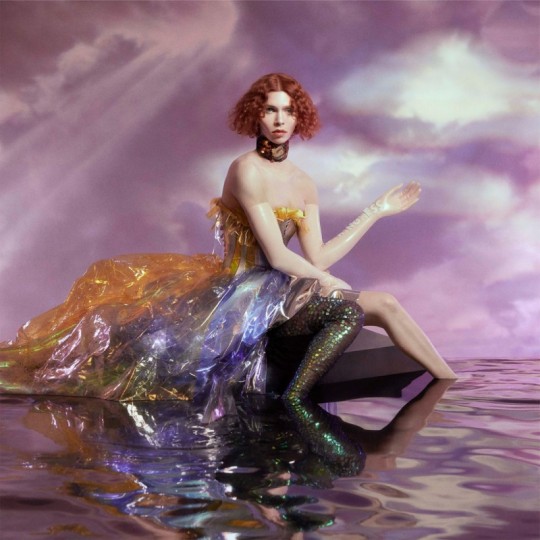
14. SOPHIE - OIL OF EVERY PEARL’s UN-INSIDES (Transgressive/Future Classic)
The title of SOPHIE’s debut album is an alternate way of spelling “I love every person’s insides,” a sentiment that pervades the stunning release. First hinted at in 2017 with the release of “It’s Okay To Cry”, the first SOPHIE song to feature her own vocals and image and reveal she is living as a trans woman, OIL OF EVERY PEARL’s UN-INSIDES is a showcase of sexual liberation and aggression and a celebration of individuality. The maximalist production and soulful vocals from Calia Thompson-Hannant, aka Cecile Believe (fka Mozart’s Sister) of BDSM anthem “Ponyboy” propels the album into a sort of ironically synthesized humanity. The pitch-shifted vocals on “Infatuation” become a moving falsetto, and the chopped and screwed singing on “Not Okay” are grounded in comparison to the alien crunch of the instrumentation. But the album peaks at the cheerleader chant of “Immaterial”. “Without my legs or my hair / Without my genes or my blood / With no name and with no type of story / Where do I live?” sings Thompson-Hannant. The answer? Everywhere, as long as there are people who love people. - JM

13. Earl Sweatshirt - Some Rap Songs (Tan Cressida/Columbia)
Earl Sweatshirt has so long been mired by a mystique stemming from young stardom and talent that, for better or worse, has been hard to shake. And though we seem to have been granted glimpses into his true self on previous records, his greatest achievement to date, Some Rap Songs, leans fully and perfectly into the haze that surrounds his persona. His tongue-in-cheek wordplay and seemingly effortless delivery have drawn comparisons to the likes of Madvillainy. But the likeness is thin--Earl’s aim is not simply to toy with language and meter. There is an intangible but ever present mood that dangles in front of you through all 24 minutes of Some Rap Songs. Fractured jazz samples and static make up a wall of mist, with Earl peeking through for brief but brilliant nuggets of wisdom and personal anecdotes. - DP
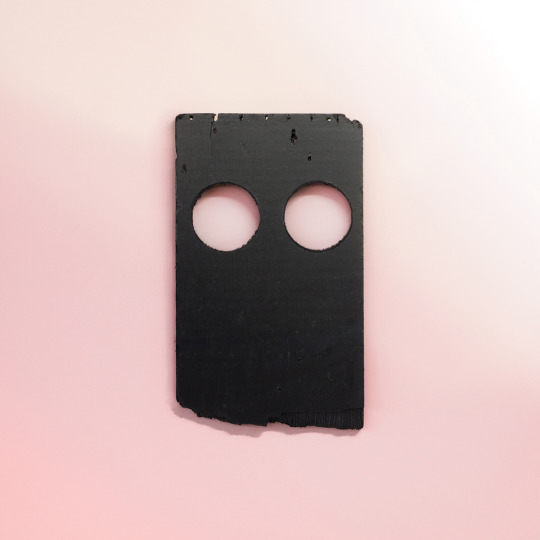
12. Low - Double Negative (Sub Pop)
BJ Burton strikes again. Though he worked with Low on Ones and Sixes, it was this year’s Double Negative that was a true radical shift in sound for the band. Thematically, it’s inspired by everything from an injury Sparhawk suffered to the band members justifying their religion with liberal thought and today’s political world. But a sense of sadness, as always, presents itself through the stunning atmosphere. Alan Sparhawk’s voice oscillates, barely audible on the hissing “Quorum”, thumping “Dancing And Blood”, and whirring “Tempest”. Mimi Parker cries on the shimmering “Fly” and hymnal “Always Up”. But it’s “Always Trying To Work It Out” that actually combines the old and the new. Over a pseudo-hip hop beat and angular, warbling guitar, the two’s auto-tuned vocals flourish over a bed of swirling noise that could find itself on a previous record like The Great Destroyer. Looking back and looking forward, Low march on. - JM

11. Young Fathers - Cocoa Sugar (Ninja Tune)
With Cocoa Sugar, Young Fathers become cleaner and more accessible, but they want you to know it’s of their own volition. “Don’t you turn my brown eyes blue,” they sing on “Turn”, a song on an album about celebrating who you are in the face of people wanting you to change. Recorded in their studio, Young Fathers this time around opted for something both mellower and bigger than they’ve ever done, and the result is something immensely personal. “Tremolo my soul,” they chant over snares, hand percussion, and 808 pops. In other words, they crave the ups and downs of real life. “I’ve never seen wicked ones face their fears / Yet I’ve always seen brave men filled with tears,” goes opener “See How” on which dissonance contrasts with steady percussion and a hopeful gospel choir. Honesty and embracing oneself is way more difficult than self-deception, but it pays off. On closer “Picking You”, the trio add another element of Scottish music to their grime-influenced sound: bagpipes and drum rolls. If “good men are strange” and “bad men are obvious,” Young Fathers would take strange any day. - JM

10. Pusha T - Daytona (G.O.O.D. Music/Def Jam)
“I’m top 5″, Pusha T claims in the first words in the first verse of “What Would Meek Do?” He’s always been a braggadocio--this time, that’s not enough. On Daytona, Pusha crosses the line with unparalleled lyrical dexterity. Setting himself up with a couple tracks where--what else--he talks about his history hustling, he goes so far as to be thankful for addiction. On “Come Back Baby”, producer Kanye West starts with a sample of “The Truth Shall Make You Free” by The Mighty Hannibal (a song lamenting addiction) before Pusha reveals how much he makes off of dope. Even the album art--a photo of Whitney Houston’s bathroom taken after she died--is tasteless.
And then there’s “Infrared”, which has now infamously set off a chain of events wherein Pusha claimed Drake uses a ghostwriter, Drake responded with a lame freestyle, and Pusha annihilated him in “The Story of Adidon”, wherein he, among other things, said Drake fathered a child with a porn star (true) and makes fun of Noah “40″ Shebib’s Multiple Sclerosis. Even if “Adidon” were a part of Daytona, the album would still be the most eviscerating listen of the year in less than 30 minutes. Pusha didn’t even need to say he’s top 5. - JM
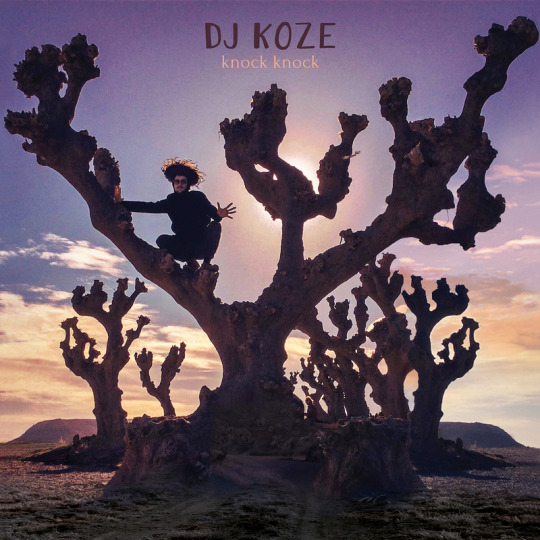
9. DJ Koze - Knock Knock (Pampa)
Perhaps not since this very site’s namesake has an album reached such sample-based bliss as DJ Koze’s Knock Knock. While The Avalanches’ opus was a crate digger’s paradise, Koze’s source material ranges from the familiar to the recognizable but still manages to make something entirely new out of it. Bon Iver’s voice is twisted over tropical techno thumps on “Bonfire”, while Gladys Knight provides equal parts sorrow and soul over immortal club anthem “Pick Up”. You’ve got Kurt Wagner’s trademark vocoder singing on “Muddy Funster” and Roisin Murphy’s wailing on the propulsive “Illumination” and growling “Scratch That”. But perhaps the most appropriate sample is on “Planet Hase”. Over skittering hi hats and hand claps, Koze takes dialogue from a documentary about Alzheimer’s in which someone pontificates on the need for music and art in achieving scientific breakthroughs. When we pay attention to the physicality of music and what it conjures within ourselves, we can achieve a sort of nirvana, argues Koze on the finest album of his career. - JM

8. Ovlov - Tru (Exploding In Sound)
For many, the expectations for Tru were uniquely immense. Ovlov’s cult status in the world of fuzzed out indie rock--rightfully earned through the adored AM--had left fans daydreaming of more from Steve Hartlett’s songwriting camp. And though the 5 year span has been punctuated by break ups and releases from the Hartlett-fronted Stove, we long awaited the signature blissed out wall of warm guitars and strained, yearning vocals that are unique to Ovlov. From the opening chords of “Baby Alligator”, Tru is a welcome invitation to experience a band’s unique sonic footprint, re-imagined through a matured sense of songwriting. Whereas AM explored a set of themes and icons or characters, Tru feels more obviously personal. Hartlett touches upon feelings of self-care and relationships, as he did in AM, but now with less of a sense of guardedness. You can always tell when he sings about himself and those around him, but the themes and references feel less obtuse. The band’s sonic palette is taken in more varied directions as well, from the screeching harmonics of “Half Way Fine” to the start-stop wail of “Stick”. Tru’s well-crafted blend of loud 90’s indie worship, shoegaze, and punk solidifies Ovlov’s place in the modern indie circuit. - DP

7. Janelle Monae - Dirty Computer (Atlantic)
Though not technically part of her collection of “android” albums, Janelle Monae’s Dirty Computer takes the theme of human vs robot to a head and adds sexuality to the mix. “Text message God up in the sky / Oh, if you love me, won’t you please reply?” Monae begs on the opener and title track. She struggles with embracing religion because of what many major religions have to say about non-straight people (Monae is pansexual), so Monae realizes that she has no choice but to love her self. “Crazy, Classic, Life” is a thumping anthem to queer black pride, while “Django Jane” is an all-rapped ode to her amazing accomplishments. Her message back is “accept me for who I am,” yes, but its her double entendre-laden ode to her own sexuality in which she finds power. “You fucked the world up now,” she sings on “Screwed”, before declaring, “We’ll fuck it all back down.” Of course, there’s “Pynk”, the Grimes-featuring, finger-snapping gem of a power pop song with a legendary video, that’s a tribute to the vagina, but over the course of Dirty Computer, Monae finds many different ways to say that whether or not our orientations are coded into our DNA, love is love. - JM

6. Objekt - Cocoon Crush (PAN)
An artist solidly known for his bold exploration of techno, Objekt now takes a plunge into a new kind of ethereal beauty on Cocoon Crush. A foray into ambient music, Objekt subverts a lot of what we have come to expect from him. The line between digital and analog is smeared. Tracks are ungrounded, punctuated still by percussion and synthesizers, but in patterns and textures that materialize in mysterious ways. And just as they appear, they stutter and morph in ways unexpected to the listener. The cold machinations of the dancefloor are still present; they are just stretched and masked in exciting and rewarding ways. - DP

5. Kacey Musgraves - Golden Hour (MCA Nashville)
We like Kacey Musgraves at SILY and included her last album Pageant Material as one of 2015’s best. So what is it about her that makes us continue to return to her music? With this year’s Golden Hour, she takes a step beyond her tongue-in-cheek takes on small town country living and branches out with a gorgeous collection of songs that look inward. It’s a bit of a “What does it all mean?” album, and Musgraves takes her time with each track, as she says on shimmering opener “Slow Burn”: “Old soul waiting my turn / I know a few things but I still got a lot to learn”. That’s not to say that she leaves that broad, hazy question completely unanswered. There’s her LSD-induced meditation on family on the minute-long “Mother”, or the gentle wonder she conveys at her surroundings on “Oh, What a World”, which sees the use of vocoder, adding another dimension to her “Spacey Kacey” nickname.
That’s not to say her knack for wordplay and tweaking tropes has faded to the background. It’s sharper here. Golden Hour shines a light on a disco ball during “High Horse” and heightens the timelessness of a “classic in the wrong way” fake John Wayne. “Space Cowboy” dares you to not crack a smile at the pause between the title’s two-word phrase as she tenderly sings, “You can have your space, cowboy”.
Yes, Golden Hour is a Kacey Musgraves album through and through, and the title encapsulates its themes so well: that flash of ethereal color in the sky, one that we can all see if we just take a moment to look up and savor it. - LL

4. Mitski - Be The Cowboy (Dead Oceans)
Mitski has found strength in the mythology of the Old West. Her latest album Be The Cowboy sees her wishing to embody the confident spirit of the title character in order to find her strength in music and relationships. Co-produced by Patrick Hyland, the album, like Puberty 2, is concerned with the body, and Mitski’s decision to replace guitars with synths allows her to feel empowered through dancing. She feels wanted on “Nobody”, and while she’s dependent on an ex in “Why Didn’t You Stop Me?”, the disco beat of the song steadies her. “Toss your dirty shoes in my washing machine heart,” she begs on the bouncy “Washing Machine Heart”, constantly finding new and humorous ways to sing about emotional baggage.
Read the rest of our review here.

3. Saba - CARE FOR ME (Saba Pivot)
Saba’s CARE FOR ME gained prominence as a tribute to the Chicago rapper’s late cousin John Walt, but it’s also a personal record about being a young black man in America. Over warbling synthesizers and minimal, cloudy production perfect for storytelling, Saba alternates between raw stream of consciousness and meticulously arranged poetry to tell his story. Walt’s death, dealing with depression, anxieties about sex, and fear of police are some of the many themes that bookend the record. On “BUSY / SIRENS”, he raps, “Sirens on the way / Now you’re laying where the angels lay,” while the record ends with him stepping into the shoes of someone dying and on his way up to heaven ( “Chalk outline look like the shape of my shadow”). In between, he details how he’s stayed alive. With the directness and dryness of Vince Staples, he blatantly says, “Momma mixed the vodka with the Sprite / They killed my cousin with a pocket knife,” on “LIFE”. But what has he learned? Each of “FIGHTER”’s verses is dedicated to an altercation, whether physical or verbal, but more importantly, introspection about what happened and why its led him to abstain from negative conflict.
All the while, CARE FOR ME seems to be a breathing document of Saba discovering himself. “Wrote the amount of raps just on a mission to find something,” he declares on “CALLIGRAPHY”. He eventually details the circumstances surrounding Walt’s death on the climactic “PROM / KING”, but what’s important is while life is uncertain and violent, no matter our background, we’ll always have art to make sense of it all. - JM
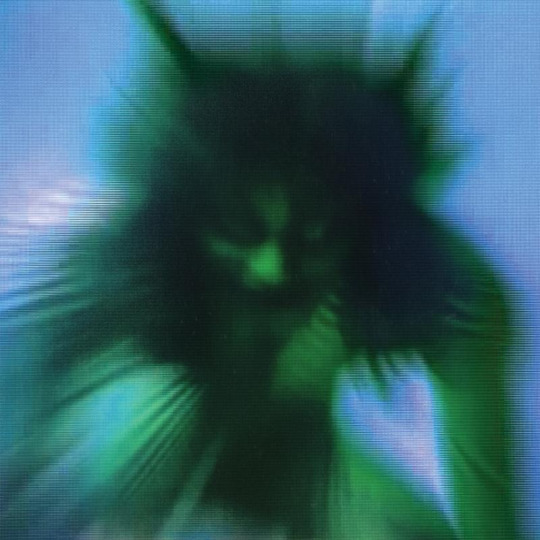
2. Yves Tumor - Safe in the Hands of Love (Warp)
Yves Tumor’s patent interplay of noise with a brilliant sensibility for pop music is fully realized on Safe in the Hands of Love. To be clear, though, this is not a jarring dance between the two worlds. Whereas most music which could be hastily labeled as “noise” seeks beauty in harshness or through a violent deconstruction of what we know to be beautiful in music, Tumor expertly weaves grating, free-flowing chaos into a gorgeous whole, channeling R&B, hip hop, electronica, rock, and everything in between. Opener “Faith in Nothing Except Salvation”, with its stuttering horns and general sluggishness, somehow perfectly sets the stage for a record that feels cohesive despite its tattered and fractured parts. The following track, “Economy of Freedom”, explores a frightening soundscape, punctuated by low, rumbling bass and an ominous thud. It trods along patiently, slowly making way for angelic vocals, creating something that borders on hip hop while also resembling a Prurient track. “Noid”, while situated in this record, could stand on its own as a magnificent pop song. It’s bouncy sense of rhythm and unrelenting energy are twisted in directions both unexpected and rewarding. Tumor’s ability to gracefully merge all of his sonic talents together without seeming even a bit contrived makes Safe in the Hands of Love an unforgettable foray into experimental music. - DP

1. Noname - Room 25 (self-released)
Our #1 album of 2018 was born out of financial obligation, Noname having moved to L.A., living out of different hotel rooms, and struggling to pay rent. That this context birthed Room 25--an expression of a sexually awakened black woman and staunch observer of the world at large--is extraordinary. In between her debut Telefone and Room 25, Noname lost her virginity, something she doesn’t shy away from talking about on the latter. “Fucked your rapper homie, now his ass is making better music / My pussy teachin ninth-grade English / My pussy wrote a thesis on colonialism,” she spits on “Self”, calling out those who thought she couldn’t rap--many of whom rap only about sex and money--by rapping about sex and money better than they ever could. “Window” details her sexual encounters over sparse arrangements, strings, drums, and no real beat to emphasize her amazing flow. (“I bought you game 5 tickets / Made my pussy the sequel.”) And “Montego Bae”, featuring sultry sing-speaking from Ravyn Lenae, is a play on a location in Jamaica notorious for its sex tourism; Noname finds empowerment in a potential partner.
But as much as her deserved sexual braggadocio stands out on Room 25, it’s Noname’s self-evaluation that makes the record essential. In other words, before she can “focus on the part of me I’m trying to be,” she has to deal with open wounds. “You title email 'Noname thank you for your sweet Telefone / It saves lives’,” she reveals on the whispered “Don’t Forget About Me” before revealing, “The secret is I’m actually broken.” If posse cuts like “Ace” (featuring Smino and a scene-stealing Saba) and rap battle level punnery like “With You” are surface-level confidence, it’s the final track, “no name”, where Room 25 comes to a head. Explaining why she chooses to go by her ambiguous, anonymized moniker, Noname lists, “No name for people to call small or colonize optimism / No name for inmate registries that they put me in prison.” But if it initially seems like self-protection, it’s actually the most individualized moment on the record. By letting her art and words do the talking, Fatimah Warner makes a defining statement. - JM
#top 70 albums of 2018#noname#yves tumor#saba#mistki#kacey musgraves#objekt#janelle monae#ovlov#dj koze#pusha t#young fathers#low#earl sweatshirt#sophie#foxing#petal#camp cope#rival consoles#laurel halo#tony molina#makaya mccraven#eartheater#drug church#lucy dacus#eli keszler#eric chenaux#the beths#wild pink#mint field
2 notes
·
View notes
Text
Awesome of the Year 2018: The Books
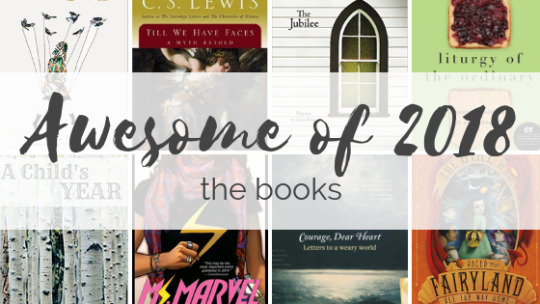
Happy New Year! ‘Tis the season for year end lists left and right as we attempt to figure out the best of everything from 2018. And of course, as a fan of books, music, and movies, it’s only right to get in on the list-making. Over the next week or so, I’ll be sharing my 2018 favorite lists. First up: books!
This year, I set my Goodreads reading challenge at 40 books, and actually passed it. I’ve been setting arbitrary book goals for years, but I’m pretty sure this is the first time I’ve succeeded since 2007. Probably because of all the graphic novels and comic trades I read this year WHICH TOTALLY COUNT BTW.
Ahem. Anyway.
This isn’t really a best of 2018 list so much as a Here’s a Bunch of Books I Really Liked in 2018 list, split up into categories. I hope you’ll find something interesting here, especially if you’re looking for ways to spend bookstore or Amazon gift cards you got for Christmas… ;)
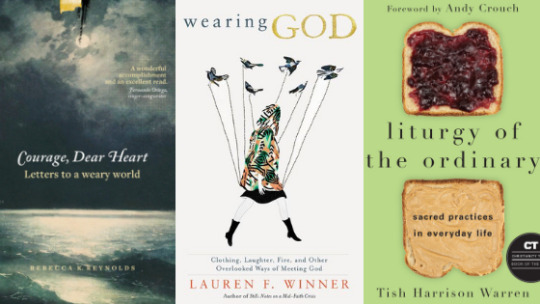
Newish Books by Rad Christian Women:
Every Arbitrary Book Goal should have a small correlated goal attached. This year mine was to make sure I read at least 50% women authors… and there have been a lot of GREAT new books from women writers in the past few years. If the “Christian women” section of your local bookstore makes you cringe a little inside too, check out these three wonderful books, all released in the past couple years:
Courage, Dear Heart by Rebecca K. Reynolds (NavPress, 2018)
Anyone who has read Rebecca’s writing knows she needed to write a book. She has a sharp mind, a poet's soul, a scientist's eye, and the most beautiful, tender heart. Also, she's an incredible writer who loves her readers with a love that radiates off every page. Buy a copy for everyone you know.
Wearing God by Lauren F. Winner (HarperOne, 2017)
Girl Meets God was a formative book in my early 20s, and I’ve always meant to read more from this author, but somehow haven't. I finally picked up this one and oh man, for a solid month afterward I couldn’t stop thinking about it. With the eye of a scholar and the heart of a poet, Winner draws on personal stories, deep Biblical study, and a love of language to explore lesser known metaphors for God.
Liturgy of the Ordinary by Tish Harrison Warren (InterVarsity Press, 2016)
Several years ago, James K.A. Smith’s Desiring the Kingdom helped me see liturgy in a new way, as not just religious practice, but the embedded routines that shape us. In this book, Tish Warren brings that idea to life as she walks through an ordinary day explores the holiness in our most mundane moments of living. You may not look at brushing your teeth or losing your keys the same way again.

Good Stories
This year, fiction reading was… all over the place? I don’t know if I read much that was OMG amazing, but here are a few that were fun…
The Fairyland Series 2-5 by Catherynne M. Valente (Feiwel & Friends, 2012-2015)
I am notoriously awful at finishing book series. I read the first Fairyland book maybe… two years ago? Yikes. Just finished the last one and wow, so fun. Colorful characters, a whimsical narrator, crazy locations, and a whole lot of heart make this Victorian fairytale meets contemporary fantasy a delight to read.
Til We Have Faces by C.S. Lewis (Harcourt, 1956)
Lewis’ contemporary retelling of the Cupid and Pschye myth through the eyes of Psyche’s jealous sister Orual. Second read for me, and even better this time around. Pretty sure this is Lewis’ storytelling at his best.
Strange Practice by Vivian Shaw (Orbit, 2017)
This was a year to embrace fun, nerdy reads. So there was the Star Trek spoof Redshirts (with a plot twist I totally saw coming... and I am not good at guessing plot twists) and my first trip into the Star Wars extended book universe (or whatever the heck they call it these days) and… this. A story about a doctor for the undead in London, trying to solve the mysteries surrounding a murderous cult and keep her monster friends safe. Not the greatest, but a fun Halloween read. I’ll get to the sequel eventually. (See also: bad at finishing book series.)
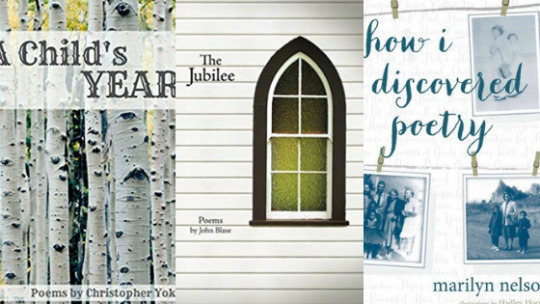
Poetry for Everyone
Another new reading practice this year: always keeping a poetry book on the bedside table. Poetry books are best for leisurely dipping in and out rather than reading cover to cover. If you think poetry is only for the ivory towers, give these writers a try and think again.
A Child's Year by Christopher Yokel (Independent, 2018)
Okay, I’m biased here, but hey! Chris quietly released a new poetry book into the world this fall, and I’m a big fan of Chris AND his poems. A Child’s Year is a season cycle, sort of like his last book A Year in Weetamoo Woods, but this time it’s anchored by a four part poem recalling the journey of seasons through childhood eyes. And according to our friend Kirsten’s 7-year-old son, he gets the experience right. ;)
The Jubilee by John Blase (Bright Coppers Press, 2017)
For his 50th birthday, John Blase released his first poetry book, with a poem for every year of life. It’s rare for me to make it through an entire collection start to finish but these were just so good. There are poems about aging — the author’s and his parents’ — and poems that evoke wide spaces and natural wonder. There are psalms and parables, and meditations on dying and, yes, living. All of them finely tuned with wisdom, gentle grace, and a touch of humor in all the right places.
How I Discovered Poetry by Marilyn Nelson (Dial Books, 2014)
When I heard Marilyn Nelson read her poem “Thirteen-Year-Old American Negro Girl” on the On Being podcast, I was captivated. And when I found this lovely hardcover in a used bookstore back home in Florida, I knew I needed to read more. This is a memoir in poetry about growing up in a black military family during the American Civil Rights era, told with gentle lyricism, warmth, and humor. Plus, the book itself is lovely with whimsical illustrations and family photos.
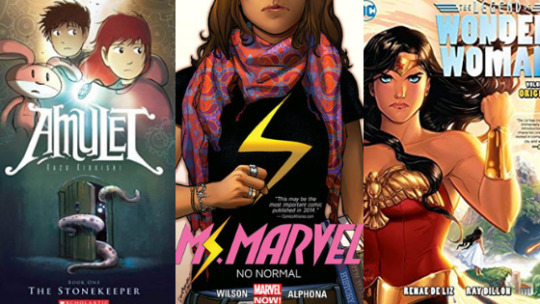
Comics!
I’m always on a quest to get more comics in my life. Plus knocking out a whole series in a couple weeks is a solid way to pad out your Arbitrary Book Goal.
Amulet 1-7 by Kazu Kibuishi (Graphix, 2008-2016)
After their father’s tragic death, Emily and Navin move with their mom to a strange old house that belonged to their great-grandfather… and so the adventure begins. In this fantasy series, the two kids find themselves in an underground world of demons, robots, talking animals, and a dangerous and powerful Amulet. A captivating and beautifully illustrated fantasy tale.
Ms. Marvel 1-5 by G. Willow Wilson (Marvel, 2014-2016)
Y’all, I super want to be a Marvel nerd. But alas, I can't keep up, so I get my sister to loan books to me. Ms. Marvel is my new fave. A Pakistani-American girl from Jersey City has the power to grow, shrink, and stretch her body at will. So she’s trying to fight crime, keep up at school, and well, stay out of trouble with her parents. So fun. (Dear Disney: I really want this kid to show up in Agents of S.H.I.E.L.D. before it gets canceled kthxbye.)
The Legend of Wonder Woman by Ranae De Liz and Ray Dillon (DC Comics, 2016)
Weren’t we all mildly obsessed with Wonder Woman after the 2017 film? Another one I borrowed from my sister. A solid take on Diana’s origin story that’s accessible for comic n00bs (ahem, like me) who can’t figure out where to begin with beautiful art and a lot of heart.
The Classic I Finally Read
Sense and Sensibility by Jane Austen
I always try to tackle either a thick intimidating novel or an unread classic in the wintertime. This year, I worked on my Austen deficiency and discovered I relate a little too much to Elinor Dashwood.

What’s Next?
In the new year, I think my goal is less about numbers and more about reading widely. I liked the 50% women authors goal because it helped me actively choose to support women writers. This year, hoping to read more books by authors of color, explore some new ideas and genres, and hopefully do a better job reading deeply and taking notes. I’ve got my eye on Book Riot’s Read Harder Challenge too, perhaps as a way to dig into new things I wouldn’t normally notice. And yeah... perhaps a monthly reading life update is a thing I can do here on the blog. :)
If you’re curious to see the full list of What I Read This Year and follow along with me in 2019, feel free to follow me on Goodreads!
What were some of your favorite reads in 2018? And what are your goals for the new year? I’d love to hear all about it in the comments!
#art#books#reading#awesome of the year#readers of tumblr#reading list#favorite books#best of 2018#readers are leaders yo
1 note
·
View note
Text
Borderline Personality Disorder, The Will To Power, Spirituality, and Happiness: tying it all together
I am writing this manuscript on Borderline Personality Disorder because I want to connect to others with the same diagnosis. I am a provider with the diagnosis and I have an intimate understanding of what my brain goes through on a day to day basis. It is fascinating to me that something as simple as going to the gas station and buying a coffee could cause so much anxiety and grief. It has, however tied me up. I have spent hours trying to gather the courage to understand the perfect way to obtain a cup of coffee and it has impacted the flow of more than one of my days on this earth. That is ridiculous, but seemingly unavoidable to me when my anxiety, obsessive thought, splitting, and mood imbalances all hit at once.
My perception of self has never equaled the perception that others tell me that they see. People around me assure me that I am funny, charismatic, outgoing, caring, and a good person. In my head I often feel that I am disgusting, pathetic, weak, and a loser. I feel like a parasite sometimes while I fully strive to be a giving human being. That is the faulty wiring of my brain that I adopted sometime in early childhood. I have formed my personality around hating myself and feeling like I am never good enough. I don’t even know what I am trying to measure up to.
Formerly I thought that feeling never good enough was a positive thing for me. I thought it would push me to achieve more as I rose in life. I wanted to be the greatest human being in the world and I hated myself for not being that person already. I set an unreasonably high bar and laughed at myself when I failed to achieve success. If I failed at any task I would use it as evidence that I was indeed the failure I had come to know. If I succeeded I would write it off as something that should have been done better or more efficiently. It was unreasonable and counterproductive to my being to have those thoughts, but I could not make them go away.
I began seeking solace in material possessions at some point in my life. I was buying expensive cars and bigger homes. The material things would distract me from my inner conflict and pain. Ultimately, I realized that material possessions can never fill the void that I was feeling. Human connection is the only thing that can satiate that craving. I am indeed a human being. BPD has made me truly feel alien at times though and unable to connect with others. That is a fallacious thought and I now recognize it as such.
I have had days where I look around and everything seems foreign to me. During periods of stress and duress I would swear that people’s faces change and even the colors of my surroundings change. My inner voice takes on a different tone. My perception of the world warps with my mood. I feel it intensely and deeply. I am not making it up or crying for attention as I was led to believe as a child. My world genuinely changes based on my mood and faculties. That very subjective nature of my own reality makes this personality disorder difficult to pin down and properly treat regardless of the time and energy I dedicate.
This had led me to studying the very nature of consciousness and reality. I have read books by Jeffrey Schwartz and Caroline Leaf on neuroplasticity. I have studied quantum mechanics, relativity, anatomy, physiology, and psychology seeking concrete reasons for my sensation and perception. I became familiar with Deepak Chopra’s views on tying quantum mechanics to our consciousness. I started to see that I was not alone in viewing this reality as a very mailable and ever-changing substrate. I saw that humanities greatest minds were struggling with the same questions and looking on with both awe and frustration.
I wanted nothing more than to understand what my perception of consciousness, space, and time, truly boiled down to and to share my experience with other human beings. The kinds of thoughts I have are not typically talked about over morning coffee or the evening’s spaghetti. My thoughts are sometime uniquely Ernie ‘isms and I must accept that. Having BPD makes me immediately feel lonely though as I struggle to connect with others on concepts and ideas. I am well adapted at helping others in my professional life because I have an outlined task at hand and an end goal. I actually think my personality disorder makes me a better provider in some ways because knowing the type of person I am, I do not pass judgement. I am able to relate to others and feel empathy. Because my emotions are felt so extremely I am able to understand the emotions of others.
One maladaptive behavior I have taken to over the years is stifling my emotions completely on the surface. I have found myself to be suppressing the expression of my emotions to the point of operating in a robot-like fashion. I remember actually consciously choosing this process as a young child, as young as 5 years old maybe. I chose to suffocate emotions of anger and to sit in a hallway for hours on end one day. As I remember it I was at a relative’s house I did not want to be at and instead of participating in any social activities I sat in a hallway staring at the wall. Even at that young age I would sometimes skip breakfast and lunch as to isolate intentionally and not participate in normal activities. This went from a conscious decision as an early child to a subconscious reaction as an adult. Where the switch happened I don’t know, but now I catch myself avoiding social situations, meals, or performing simple daily tasks without having ever thought about it. It will be something that another person will point out. “Aren’t you hungry?” and I will think “Hmm, I don’t know, let me think about it… I guess I am hungry, I didn’t eat lunch.” Sometimes I will find a reason. It is like I throw a subconscious temper tantrum. I don’t even recognize myself doing it at this point and I wish I could control it. I am now monitoring my mood and looking for cues in order to correct the maladaptive behavior. This is strange as I am 33 years old.
I recall an experience in preschool when I was asked to sit in time out for coming at another kid with a plastic chainsaw. I took my time out of two minutes as I remember it, without fuss, then I would not get up on time in. I refused to get up for the rest of the day in fact. I made the punishment intentionally extreme as a choice. I remember choosing to not stand up as an act of self-disparaging rebellion. I remember thinking “I can sit here all day in time out just to show these people it doesn’t bother me.” As an adult I evaluate the behavior. I am thinking it was a way for me to say “I can’t be broken by your punishment.” I took a strong nihilist stance early on. Rules were ridiculous to me and whether or not I was supposed to suffer I would refuse to. I think I was trying to show them that punishment would be useless. They could not change me. They could not break me. I was in charge. I think I needed to feel in control. I believe it was overcompensation for a life that was truly out of my control. That is the best theory I can put together as an adult.
This sense of loss of control and my struggle to maintain a sense of it went on to define many aspects of my personality. Perhaps I was wanting that preschool teacher to look at me and say, “enough is enough, you don’t deserve to be punished” and to look at the ridiculous idea of changing another sentient being’s social behavior. I never understood why someone else could make rules or boundaries that I had to abide by. I think even as a young child I found them to be repulsive and insulting… arbitrary at best.
Was this manipulation? Was I truly engaging in a mind game with an adult at such a young age? In my mind the internal voice kept telling me to sit at that table in time out. To just wait it out. To see what happens. Who would break first? Not Ernie. That is what I did. It was a small event that essentially meant nothing, but in my mind, I can still relive it and feel the same emotions I felt then. I needed to show these people that though they could physically put me in restraints, it didn’t change a damn thing.
As an adult I saw the same behavior in a woman I call my twin. She seems to have many of the same thought processes and beliefs that I do. She struggles with boundaries and guidelines. She finds life to be mundane at best most days. She wonders why in the hell someone with so much mental energy has to be caged in such a dull environment. I stood in her way during a minor mincing of words we were having. I blocked her path to exit our shared kitchen. I could see her anger building. She was absolutely not going to give me a single answer at that time no matter how much I demanded it. She was appalled that I could stand in her way and physically overpower her. Though I could block her way, I could not get her to speak a single word. I could not break her. She was in control. She struggled and longed to have the ultimate sense of control. She could be physically restrained but even her living twin, the person she connects with deepest on this planet, was not going to be able to pull a single utterance from her conscious mind if she didn’t will it so. She had to win.
I saw myself in her that day. I saw an absolutely unbreakable spirit. What twinsie and I share is beyond physical, sexual, or psychological. It is deep and I cannot label it. I have never seen it in two other people. It is uniquely ours to share. We have something that the rest of this world could only dream of. I am the one person that she will ultimately break down for in this world and I am proud to be the one person that will break down for her. To take away those secure walls and expose our vibrant inner beauty. I love seeing her stand true and proud, a defiant lotus that the rest of this world doesn’t have access to. I am actually driven by being the one person that she lets in to her secretive world. That is how I define true love. I will absolutely break down and give up my sense of security and become vulnerable to share the ultimate connection with my true twin flame. I feel as though I long to both break through her every wall and to allow her to simultaneously break through every one of mine.
That is something I was seeking in this life and BPD was limiting me from sharing. A connection. The world felt alien. Until I felt someone with the same splitting, angst, core values, and pain I didn’t think I would ever find someone who would understand me. That feeling of loneliness was overwhelming and was defining my life. It left me standing alone in a crowded room.
Back to childhood, I look to an incident on the school yard. I was dangling from the monkey bars. I remember kicking my friend directly in the testicles intentionally while playing “chicken.” In my mind I knew exactly what I was doing, and I intended to kick him in the most painful area possible to drop him from that collection of steel. I was a child, I don’t know why I wanted to hurt him, but my thought was “I need to hurt this person right now.” I am still friends with him today, his name is Josh. We went on to discuss spiritual matters as adults. That day on the school yard I brought my leg forth and connected as intended right in his groin. I then remember the teacher coming to me and telling the other children that it was an accident. I bought into her story and lied about my intentions. I claimed I did it on accident. I took the teachers story and went with it. I saw that I could get away with murder. I saw that given the right social performance I could do anything and spin it as something it wasn’t.
Unfortunately, that ‘social performance’ aspect became central to my childhood. I felt like an actor much of the time. I was playing a role to get the results I wanted from every given situation. I never let even my family know the real me. I only opened up to a few core friends, and even then, I never fully opened up and showed my real core. I felt vulnerable if people were able to figure me out, so I always acted. I would pretend to be engaged in some boring TV show just to throw people off of understanding my true interests. It was like I knew I was surrounded by people that I really didn’t want to connect with so I would connect with them on things I didn’t care about so that I could then have false relationships with them. By maintaining the superficial relationship, I was in control. If I ever felt comfortable enough I would break down the superficial connection and allow a true, deep connection to exist. I can count on one hand the number of people I have ever started that process with. The people I would feel comfortable truly connecting with were special and I would show them my true vulnerabilities and interests in music, art, video games, and science on my own terms. To give them some sense of control in getting to know me was my ultimate way of letting them know that I truly loved them.
I don’t know why I complicated my social interactions so much, but I did. It was elaborate and took a lot of my thought process. It continues to do so and I do it now without conscious thought or effort. The truth is, I am able to ‘bond’ with anyone on just about anything because I have become a chameleon at blending in when needed. I can fake being interested in just about anything when needed and people automatically see me as their friend. The truth is, deep down I have not connected and with most of those people I share surface level connection I do not wish to have anything deeper. I do not wish to let them in. I genuinely have come to love all people and I actually enjoy getting to know them, but initially that wasn’t the case. Early on I simply played a role and felt completely detached emotionally from almost everyone I came into contact with. I now get my sense of well-being from being able to keep everyone calm and genuinely liking me. I don’t know why, but my personality has developed in that fashion. It seems that if someone has a problem with me I genuinely internalize it and let it gnaw at my gut deep down. On the surface, however, I have made a habit of acting completely unphased by anything no matter how harsh. It is like I feel one thing and exhibit another on the surface. My personality is complex and maybe even inappropriate.
I knew at some point my truth was my own truth. I could easily manipulate reality one way or another even as a child. I found myself in deep thought over emotions and relationships. If something was not going my way as a child I would do something like go out of my way to put myself in an obviously vulnerable position in order to gain some leverage in the form of getting an adults attention and therefor gain control over my environment when the adult found me to be in a precarious situation and would come to my rescue whether it be mentally or physically. I could use my projection of deep sadness to get adults to feel sorry for me. I could use a projection of being excited about something that everyone else found repulsive as a way to get people to back out of my personal space and think I was weird. I was in control. I was letting people in who I loved and pushing people away who I didn’t. I was learning more about those people while they learned nothing about me. It was a guaranteed safe place.
I now see my eccentric likes and dislikes as an elaborate filtering mechanism. I would put up a wall of weirdness and if someone actually tolerated getting through all of the weird parts of Ernie they had earned the right to get to know the true Ernie. They could get through and see that I am indeed a loving, caring, compassionate, gentle, altruistic human being. But first they had to wade through a sea of dead baby jokes, menstrual blood tinged cottage cheese and conspiracy theories that Ernie also finds amusing.
The good energy that makes me up is also capable of appreciating the dark side of life and finding it amusing. It is important to me that my true friends see that and know that all in all I am a good person but that I can laugh and muse at the darkness. That having no boundaries and no limits is simply my way of being truly open to experiencing every aspect of life. That being able to test my power one day doesn’t mean I want to be in control, because the very next day I might test my vulnerability. I want to experience life to it’s fullest and most extreme. I am wired that way. I want to feel fully in control while knowing fully well that ultimately I am powerless.
Looking back, it seems like a child’s cry for attention. As an adult I think that sense of control over emotional relationships gave me comfort in a way. I was more comfortable knowing that I was leading the adults on and letting them think I was a certain person when in my mind I was not that guy. I am trying to honestly explore that feeling and to see if I am indeed driven by the want to control and manipulate or if this is truly involuntary… or at least to explore what it is like living in a mind with BPD
In my first marriage I connected fairly quickly with a quiet girl who had a somewhat bumpy past. Growing up she was also left to fend for herself at times, at least that is what I gathered from the stories she told me. I connected with this girl and we spent much time together. We learned each other’s personalities, likes, and dislikes. I was not always honest in the beginning. I would, for example, say I didn’t like sea food when in reality I loved eating fish. I would choose to not like it because she didn’t like it. I would lie to connect with her. That went on for the first few months of our young relationship. I was 17 years old when I met this girl. I was still figuring out who I was, and I was forming it with another person around a process of manipulating in the context of borderline personality disorder.
The relationship had ups and downs, but early on I was the first to say “I Love You.” I was the first to make the extreme moves and then use my brain to fill in the rest later, trying to logically connect the dots. I saw this girl in a hallway in high-school and my first thoughts were “could you ever marry her, would you be with her forever, would she be the love of your life?” I immediately began planning to go all in with her after we first agreed that we were dating. I escalated things quickly and vowed to spend eternity with her because she gave me the time of day. Most people don’t think like that. I did. I was all in day one. I also at the same time felt like I would destroy her life by letting her get with such a loser like me. I wanted to love her and to save her by pushing her far away from me. The selfish part of me needed her, the selfless part of me needed her to be free.
I started off spending my every waking moment obsessing about this girl and ultimately did go on to marry her, but in the process, something strange happened as I did not understand my brain at the time. I would get comfortable with her and things would be going well, and I would assume that I was not doing enough or good enough for her. I would then create tension and angst in the relationship and pressure her away from me. I would push and push. Because I was not perfect. I would always assume that there was some flaw or fault in myself that just wasn’t good enough and I would use it against us. I would tell her time and time again that I was not good enough for her and that I was a pile of garbage and that she could do better. That was my depression seeping in and it was not a valid thought. The example that I read from a person with BPD that really stuck with me is this: “I could see a person begging for money. If I didn’t give them money I would kick myself for being selfish. If I did give them money I would kick myself for not giving enough.” It was like no matter what I gave it was never enough. I was wired to believe that my all out best effort was going to fall short and therefor I was doomed to be a piece of trash.
The pattern of constantly self-loathing and memorizing disparaging remarks created emotional turmoil and I would then push my partner away and reel her back in. This happened over and over again. It was exhausting. It resulted in significant damage. My personality was unstable enough that she never knew what she was going to get. She spent her time going out of her way to keep me from going insane and I constantly tested boundaries. What would she truly tolerate? Did she love me enough to put up with this? Unfortunately, this also enabled the borderline behavior to exacerbate. It went from something that I was doing at age 5 as an experiment to something that I couldn’t control as an adult. My emotions had become out of my control and they were being used to shape relationships in my life. It was chaotic and seemed a bit peculiar when compared with the way other people seemed to feel.
I have often felt alien and alone in this world. I felt that other people could not possibly feel so disconnected to their fellow man while fully knowing that they are indeed human themselves. Now reading the literature, I am encouraged that many people feel just like me. Alien. Robotic. Foreign. They have unknowingly programmed themselves to inappropriately use emotions to influence relationships as some sort of response to stress. The problem with BPD is, by the time it is active and roaring, it is too late to look back. It becomes the norm. The ego is established and without a great deal of introspection, guilt, pain, and rethatching, identifying these things as maladaptive can seem undefeatable. As a young adult I lost control of my emotions quite a bit and I was a bit all over the place. I didn’t recognize why, or even see it as a problem. It was just me. I would have outbursts of anger at others, at myself, at friends, and at family. Relationships would seem to be crashing to me when others had no clue what I was even focusing on. I would sometimes just stay quiet and disappear. I remember that was my way of quitting bands or quitting jobs… I would simply stop showing up, stop answering phonecalls, and just cease to exist. I would back out of relationships rather than face the conflict of admitting that perhaps it was time that I moved on.
I didn’t want to face the conflict in person, eye to eye. I didn’t want to let anyone down. I truly wanted to give my all to make everyone happy, but at the same time, a part of me was dying inside by continuing to be fake. I felt like an actor. I felt like I couldn’t simply stand up sometimes and say “this music we are making isn’t what I want to make” and walk away. I wanted to be in control of the writing and creative process but instead I would remain silent in the background playing drums and flexing to keep others happy. All the while, my unhappiness was boiling over and being exhibited through my avatar (as I have come to call my body) in silence and palpable disconnection. Where other people wanted to make music to make crowds of people think they were cool, I wanted to make music that connected spiritually with myself. Sometimes my peers would view me as a weird guy just wanting to make weird music for the sake of being different, a cry for attention perhaps. That wasn’t the case. I wanted to write the kind of music that truly expressed how I was feeling.
I wanted to the go on to perform that music on my own terms in my own way for others to either appreciate or reject. I longed to connect to others through that music, but if they couldn’t appreciate it that was okay too. I felt disconnected from my bandmates who simply wanted to perform a couple of cover songs for a room full of drunks. I was not there to entertain, I was there to teach and experience. That is what interested me and ultimately why I wanted to quit every band I was ever in. I have not been able to find another person who feels the same way, of wanting to create something that we can all connect on at a visceral level.
I would give my all to writing and performing drum and vocal parts for some of the bands I was in over the years. I would try to contribute my musings through ironic lyrics and nuanced drum fills. All the while I felt underappreciated. I felt like I was just a guy who was there to fill in where any drummer could just sit in. I felt that my views on the world and lyrics weren’t taken seriously, as much as they were written in satire, that is the seriousness that I intended. To satirically point out the ridiculous nature of heavy metal’s backbone which is isolating and pushing people away more and more as they seek the next “legit” band and scoff at “posers.” I wanted to bring these people together and give them a sense of “maybe we’re all in the same boat and we should just have a good time” rather than worrying about how freaking gay breakdowns and hardcore dancing was.
I lost music somewhere along the way because I could never find like-minded people to play it with. I wanted to simply connect. I wanted to make music for the sake of music, connection, love, solidarity, and to express our feelings with the human experience. I didn’t want to replicate what other people were already doing. I didn’t want to entertain a room full of people on a Friday night. I didn’t want a free bar tab or a backstage pass. I didn’t want paid for a single gig. I just wanted to see who else was feeling what I was feeling. I still want that, but I don’t know where to look.
Moving on, ultimately, I went on to end my first marriage and I had reasoned that there was just too much damage done and that there was no way to mend from the amount of times I had pushed and pulled this girl. I also had begun falling in love with another girl who happened to share many personality traits with me: the aforementioned twinsie. I finally felt that deep connection with another human being that I had been seeking for so long, and it was on the tail end of me trying to come to the conclusion that I was in fact not human refuse.
That connection that I mention is a key part of my personality. It is central to my sense of well-being that I be understood, appreciated, and loved by someone else. I never recognized that before. I was so caught up in self-loathing that I honestly believed that I was not worth loving. I have read that this is common in those with BPD. A sense of being the one person that cannot be loved, appreciated, respected, or connected with has become central to many of us. We have developed maladaptive personalities as a response to absurd stimuli in the setting of distinctive genetics.
Western society has us filing through as caged animals. We are in fact mammals. We are designed by nature to eat, sleep, reproduce, and dominate. We have done a good job of dominating our environment. We are now at the top of the food chain on this planet, Earth. We human-beings are the apex predators and because of that we sometimes lose touch with our true inner animal. It is like the alcoholic who is 10 years sober who has that one drink, he is suddenly rushed back in to that cycle of drinking. Day after day and starting over at square one.
Human beings are complex social creatures. We thrive in settings of love. True love and empathy are the only ingredients necessary to produce positive results. We must love our children and nurture them. We must find ways to break down their walls and get through to them and let them know that we truly love them no matter what. That is the only ingredient needed for a successful life. Love. We must support them and bear with them as they learn this process of living.
I now realize that I am a valuable human being and that I do deserve to be loved. Unfortunately, it took me a very long time to realize this. It seems so simple, and on the surface, it is. But even with all of the logic in the world, my emotions would never allow me to love myself. I could have come in with this first, but it may have poisoned my understanding of life. I may have not gained the knowledge and insight that I have had I not suffered.
The worst decision I could have made in my life was to begin using chemicals to “shut my brain off” as I always called it. I began drinking heavily or taking sleeping pills to just go to sleep at the end of the day. The constant struggle of never feeling good enough or worth living. Studies clearly show the prevalence of alcohol and drug abuse with BPD. For me it was the option to turn off the torture generator in my head to drink enough alcohol to sleep. I wasn’t doing this to destroy my marriage, my career, or to hurt anyone. Ultimately it did cause a lot of strain and did cause stress on the things I valued. I didn’t choose alcohol over life, I chose shutting off painful thoughts over suicide. I was just wanting an off switch from the reality that I was interpreting as so painful. People don’t realize that. I feel sorry that people view it as a personal attack when I say reality hurts. I don’t mean it that way. I also don’t mean to ask for their sympathy. I simply want to live and let live. I will get by, I am strong, I have faith in me and I want others to have the same.
I was able to stop drinking alcohol and focus on myself early in 2018. But at that time, I was not really even thinking about the BPD, I was more focused on depression or bipolar disorder. I stopped drinking and started really focusing on myself through exercise and diet. I wasn’t aware of how my personality disorder played into my mood disorder. It was a chaotic dance of sorts. There were nuances of mania and depression rearing their heads with this an almost flat affect I had developed. I found everything in life to be absurd and treated life as though I were a stand-up comedian just musing on my observations. I kept a straight face. Only the most extreme things could cause me to truly laugh. I somehow inappropriately (or maybe appropriately, this is subjective) attached laughter with absurdity.
I was able to see the humor in everything. There was absolutely nothing off limits. My extreme personality allowed me to explore extreme topics. I had watched clips of people being hurt and killed and essentially found the ridiculousness of it all to allow me to laugh. My brain had seemingly wired a circuit to find absurdity funny, so I could escape the true pain that it was causing me. We see people get kicked in the scrotum on MTV all day and laugh at it, this is a light version of what I am describing. Having access to all things human via the internet I desensitized myself to the most extreme of human behaviors. I have seen video footage of a man being beaten to death with a hammer. I have seen a chainsaw beheading video. Even worse, I have heard a chainsaw beheading video.
When I honestly put myself in that man’s shoes whose lifeless body is gurgling for wind from some prehistoric reflex I feel the pain of the human condition. I am able to know that I am mortal. I will die. I will cease to exist in the form of Ernie one day. I have been face-to-face with death as a young child raised by elderly distant relatives, and I have watched other human beings take their last breath as a hospice nurse. I have hunted deer and geese. I have taken the life from a dove and consumed her flesh. It is a chaotic balance of energy that I have been a part of in this very real chain of events.
The will to power, the longing to be in control takes a darker turn at times. So for me to make the decision to take another sentient being’s life in order to eat, I now must question what that truly means. As a 33-year-old white male in America I am surrounded by meat and cheese. Lives lost for the sake of contributing energy back into the circle of life. It all comes back to me and I can feel so clearly the morning I first took the life of a white-tailed deer.
I was camped out in my tree stand. I was dressed like a redneck in camo and I had hiked into some fall scenery right out of a Mark Twain novel. I was sitting silently and waiting for motion. When I finally heard the crushing of leaves my heart began to race. This is it. This is the moment I have been waiting for. To kill this sentient being. The hunt was on.
I saw two does playfully wondering through a sparse patch of thin trunked trees. The leaves were golden and red. They were almost dancing with one another. They hadn’t noticed me but I watched them come into my field of vision. I moved and one of the does looked up. She made eye contact with me. Her tail flipped up. White flag! She was ready to run. She was afraid. I drew my bow and let loose an arrow into the distance.
There was a calamity of hooves and cracking leaves. My heart was racing and there was sweat on my brow. I could smell autumn. I was one with the nature scene I had very realistically painted myself into. I rushed down from my latter clumsier than I would like to admit and began taking large gallop-like steps toward a creek bed. I could see a faint trail of blood on the ground guiding me to where this injured creature must be. It was like I looked up and there she was. Right in front of me. I was on top of her and didn’t even see her. She appeared out of nowhere.
She was lying in a shallow creek bed making labored breaths. Begging mother nature for her life. I pulled my 9mm side arm from my waist and did what I thought was the right thing at the time. I mercifully killed her by shooting her in the head. To end her suffering. My adrenaline was coursing through my body and I could not imagine what my next move was. I picked up the lifeless doe that was once dancing with her friend and threw her over my shoulder like a sack of potatoes. I carried her out of the woods like a “real man” and disrespectfully threw her body in the back of my hatch back ford focus. Her eyes were glazed over and her tongue fell out the right side of her mouth.
I brought her to my home and removed her skin. I hung her from her hind legs in my shed with some bailing twine that was laying around and I opened YouTube videos on how to butcher a deer. I called my friend Gabe to see if he had a knife, he was too drunk to help me dress my kill.
I began hacking parts off of this majestic creature’s body with an axe and a dull kitchen knife. I had already purchased butchers paper and I broke down the meat the best I could with the guidance of Youtube. I turned on a death metal album by Cannibal Corpse to get me in a disgusting mindset as I butchered away. I needed the distraction in order to complete the job. My now ex-wife came home to find blood on the back porch and door knob and she knew “Ernie got a deer.” What the fuck does it even mean? I got one.
We went on to incorporate this fresh meat into our cooking for the rest of that year and I even tried to consume the organ meats with Gabe as to not waste any of the animal. Looking back it seems so barbaric and out of character for me. I don’t think I could ever pull the trigger again or let another arrow fly. The sanctity of life is not something that I wish to choose when it shall end. All life is sacred in This consciousness. That is what I have come to appreciate. I know others struggle with it and take it lightly, but I have intimately been there. I have danced with death and I know every callus lunge.
To me, now, the thought of being able to obtain a permit to hunt and end a life is absurd. Of course, creatures need to eat. But I am looking at this planet as a whole. How can human beings simply choose what life is sacred and what life is not? We fish the oceans dry. Why must we consume those things with sentience in order to survive? I don’t believe it is necessary at this point. That seems a bit misguided to me to think that it is entirely just sack after sack of matter and therefore vitamins and nutrients. Sure, I have stomped out an ant hill, I have crushed a fly. But what gives me that right? I believe as a human being we are blessed and cursed to know that life is finite. I do not wish to be a god amongst plebeians.
Knowing that my true moral code is to love all life and to appreciate it and hold it in high regard is paramount to my existence. I can then, unfortunately, explore the very opposite of this notion. That life is not sacred. That this existence is pointless and meaningless. That we are simply chemical reactions. The view of materialists is that we are a complex series of reactions. While I don’t believe this to be accurate, I have had my brain chemistry altered to the point that I almost believed it.
I had a short stent of taking the drug Abilify for an episode of mania and panic. I was started on this in-patient and continued it for about a week after hospitalization. Honestly, within a few days of being on the drug I felt no emotional attachment to my wife of so many years. I also believe, however, my true emotional attachment to her had waxed and waned over the previous years as my personality disorder pushed and pulled my life. While on Abilify I was able to make cold and rigid decisions without any emotional repercussions. I truly feel I could have strangled somebody to death and not felt any remorse on that medication. Is it simply the neurotransmitters in our brains that regulate our sense of right and wrong or are we tuning into something greater like a collective consciousness?
Through the years professionally and personally I have chronically had angst about my performance or accomplishments. I would always immediately downplay my performance and know that I could do better. Until I drastically modified my lifestyle and stopped drinking alcohol I was headed toward self-destruction. Having our neurotransmitters out of balance is like tuning a piano with an out of tune reference. I don’t know how to better describe it. It is like interpreting the world through a faulty interpretation device. Nature provides us the tools to perfectly balance and calibrate our interpretation device if we are willing to take the time and effort.
In this eastern society it does take time and effort to calibrate your device. In the wild it would not. You would not worry about being depressed or manic in the wild for a number of reasons. The cycle would have simply played out as it should. In our artificial reality that we have constructed with these cities and roadways, we have to take the time to get back to nature if we want balance. We need to re-calibrate our brains. We need to balance our neurotransmitters.
Our neuro-endocrine systems naturally produce everything we need if they are functioning properly. In order to function properly they need the correct environment. Our biology is specifically fine-tuned to allow us to thrive in whatever given setting we happen to arise from. We are at a point in which we are modifying our environment faster than evolution can catch up with and thus we have the central disconnected feeling that comes out as angst and turmoil. Identifying this and utilizing our strengths to fit into our own lives on an individual level is the prescribed treatment. There is no one size fits all plan.
Neuro-endocrinology functions optimally when given appropriate ingredients and in human beings those ingredients can be obtained from plant sources, water, and of course love. In order to best fuel our bodies optimally we should be eating a vegan diet which is free of processed foods, hormones, antibiotics, and suffering. When we eat food, we are eating the building blocks of our body and mind. Food is information essentially. What we take in builds what we are. This is important. The fuel we run on is central to our functioning at our best.
Looking at myself now, I am obsessed with telling the truth and being accurate. I want to live a life that I am proud of and therefor hold no secrets. I want to connect with another human being on an intimate level in which I tell her no lies. I want to be as open and forth coming as possible. The ultimate vulnerability. The payoff, is the ultimate relationship. It is important that we all begin to shift our culture to a culture of openness. We should be proud of who we are. We should be able to express our deepest desires and interests freely.
If we have something to hide, it is likely leading to negative karma. This is how I weigh my karma. When I do something I ask myself, “Is this something you would feel proud to tell everyone in this world?” If it is not, there is a better option. It is important as a species as we continue to evolve spiritually and emotionally that we understand this internal compass and respect it. We need to always bend to the will of the internal compass and listen to it in order to have the most fulfilling lives. If your gut tells you not to do something, you seriously need to stop and reconsider that decision. Take time. Make the right choice. To truly work through this process is grueling but it will lead to the ultimate transcendence.
The ultimate will to power is to give up complete control. Give your life over to the laws of the universe. To love without questioning “what is in it for me?” to give without wondering “do they appreciate it?” to teach others to better themselves and stop judging them for what they aren’t. Start seeing human beings for their potential. To push forth and get every bit of positivity out of our fellow-man’s soul. To not wonder “how am I going to get by” and just wonder “how can I help someone else get by.”
That is what I am striving for. I will post this long post for free, relatively unedited, though it feels like it should probably be in some sort of BPD and spirituality book or something. I know that in my life the Universe will provide for me food, shelter, wisdom, and love if I stay on the right path. I have that faith. I am following it with open mind, open heart, and open soul.
#life#love#borderline personality disorder#bipolar disorder#friendship#companionship#connnection#akashia#akashicrecords#akashic#empath#empathy#spirituality#psychology#psychiatry#vegan#conscious#conciousness#reality#spacetime#quantum#healing#feeling#psychic#energy#matter#emergence#emergence theory#sanctuary#control
1 note
·
View note
Text
Meta Reflection: Part Two
My freshman year of undergrad I became very close with one of my professors-Len. He witnessed me enter my first semester of college with a fire of certainty about my path personally and professionally. As the semester went on, the flames of certainty began to flutter from the winds of change, new ideas, unexpected realities, and an onset of self-discovery I did not expect.
How could I expect it? I thought I had it all figured out.
That was it. The idea of having it all figured out is what set me of course from my own sense of stability-because, in my head, how could anything ever go awry? By the end of the semester I changed from having a declared major to undecided, and registered for all elective courses for the spring. Dissatisfied and afraid of my own self, I found my mind and soul in conversation with Len, frustrated that all my plans have fallen to pieces.
To give you a better sense of just how challenging that was for me, school was the only thing I ever felt in control of, it was the only thing that brought me joy, it was where I found love and comfort. I found friendship in academics instead of other humans. Learning and academic success was the only thing I was able to connect to - it was the only thing I could trust to connect to and didn’t feel afraid of. Sitting in Len’s office at the end of that first semester, in tears about my path, academically and personally, he said to me, “Joanna, I am more concerned about the people who have it all figured out than those who feel completely lost”.
It’s been nearly a decade since that conversation and I find myself in a headspace that doesn't feel much different than that first semester of college. Despite having succeeded in many parts of my life, having failed desperately in others, and learning from every lesson there was to inhale, I’m sitting here one project away from finishing my degree and uncertain about so much. Perhaps I’ve grown too comfortable believing that things will just “work out” and haven’t been deliberate enough, or maybe I’ve lost faith in trusting the process and am finding myself in emotional limbo.
I started this semester navigating rough emotional and mental waters with an intensity I last experienced several years before that brought me back from my first master’s program in Northern Ireland. I lost touch with everything that helped keep me grounded in thought and rationality and when I wanted to seek the controlled comfort of an academic setting, our shared online world of schooling was far from calming. I eventually settled my bare feet back onto stable ground and built excitement for the semester and the intellectually stimulating conversations that I always so deeply crave.
I had three goals this semester:
Figure out what I want to do with my Phd
Present at the Learning Sciences Graduate Student Conference
Add something new to the foundation on which my research and educational transformation ambitions lay
Let’s talk about those.
The Phd will wait. Am I satisfied with that? Yes and no. I like plans laid out, remember? I am dissatisfied only from the prescribed notions of what “should be” that were defined by arbitrary standards and toxic judgement. I am working on letting that go. I am deeply comfortable and happy with the plan that has been put in place to figure out whether a PhD is actually what I want. I am excited about the questions I will be paying attention to that spark my curiosity, fuel my ambitions and that will guide me further into the ways I want to transform education. I am very much okay and enlightened by this plan. So, for that, I put a green check for what I hoped to accomplish this semester. The conference is a different story, but to continue on a path of listening to my mind and body and doing what I need to do, I will leave it at this: I made a choice that, at the time, was exactly what I needed. My comfort and understanding in that choice will settle, what’s right doesn’t always feel the best.
That last goal, though, I feel good about that one.
There were particular class sessions this semester, especially in the latter half, that opened conversations during which I was eagerly waiting to unmute myself and dig deeper into the topic, my own unraveling thoughts and curiously engage with other perspectives and insights. As is my modus operandi, I used every lecture, discussion and assignment to wrestle with how the content can uplift my ideas, answer or deepen my questions, or play a role in how I develop my research in genocide prevention. As I weaved that thread throughout each session, it was made stronger by the structure of the class wherein each previous lecture was revisited the following week and served as a purposeful transition into new content. This kept me aware of how all the concepts are connected to themselves as well as how I can continue to weave my purpose into these topics. As we discussed transfer, it provided me with an additional foot hold for making sense of the impact of transgenerational trauma and its effect on student experiences and ability to learn. This became apparent again toward the end of the semester when discussing stereotype threat and recognizing that the way individuals internalize ideas, lessons, concepts and ways of being and doing with regard to education, ourselves and our social and physical world can be challenging to overcome once those beliefs and values become deeply embedded and bleed into any new information we try to internalize. This is especially the case when the new information directly challenges those beliefs and values that define how we see the world and ourselves.
Then, even in very small ways, conversations about culture and context always found themselves in every class session-which I think is a critical focal point when discussing education, especially in the context of educational transformation. That was a persistent motivator in recognizing our collective role in the world we are building, in the social realities we generate on a daily basis that can amplify individual worlds in the best way or in the worst.
We can often fall into talking jargon, being too research minded or outcome centered, that we disconnect from the pure humanness of every experience-the impact of small words and phrases, of smiles or rolled eyes, hello’s or scoffs, a welcoming embrace or fear of difference. There is an unwavering beauty to the human experience that is marred by the amplification of each other’s differences that are held to existential competition with grave and long lasting consequences. We have an incredibly powerful platform within our schools that is waiting idly to be engaged with-a platform that reconnects learning to who we are as individuals in all that makes us similar and different. Perhaps that sounds idealistic, but if I didn’t believe that our schools and the way in which we engage with one another in purposefully meaningful conversations about identity, history and empathy could transform our collective experience on this planet, then I would not be writing it here. I’ll leave it at that.
0 notes
Text
Royce Kurmelovs

Royce Kurmelovs is an award winning Australian journalist and author whose work has been published online and in print by Al Jazeera English, The BBC, CNN, The Guardian, VICE, The Saturday Paper, The ABC and others. He is the author of three books, with his fourth on the high level of Australian indebtedness due to be published by UQP in August 2020.
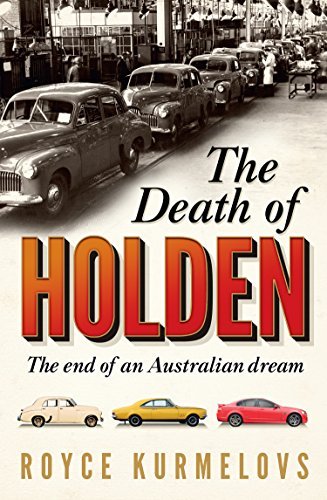
The Death of Holden: The bestselling account of the decline of Australian manufacturing By Royce Kurmelovs Buy on Amazon
Royce Kurmelovs is an author of The Death of Holden (2016), Rogue Nation (2017) and Boom and Bust (2018). He lives in Adelaide, South Australia.
What are one to three books that have greatly influenced your life?
Catch-22 Starring Alan Arkin, Art Garfunkel, Bob Newhart, Anthony Perkins, Martin Sheen
It depends on what period of my life you are talking about. When I was younger, the book that had the biggest impact on me was Catch 22. People might rave about dystopian novels like 1984, but Catch 22 offers something deeper: you get a critiques of capitalism, authoritarianism, masculinity and bureaucracy in one beautiful, absurd package told with a striking sense of humour. It also helps make sense of the world we currently live in.
The Bus Driver Who Wanted To Be God & Other Stories By Etgar Keret
When I grew older, Etgar Keret's The Bus Driver Who Wanted To Be God had a profound influence for the way he told simple stories, always with a twist, in a conversational way.
Work and Other Sins: Life in New York City and Thereabouts By Charlie LeDuff
The last has been Charlie LeDuff's Work and Other Sins which is a collection of profiles and other journalistic works from his time at The New York Times. He showed me how to be a reporter.
What purchase of $100 or less has most positively impacted your life in the last six months (or in recent memory)?
As a working freelancer, life can be pretty risky, but a month or two back I upped my membership with the Australia journalists union, The Media and Entertainment Arts Alliances which gave me insurance coverage I haven't had before. Having that sort of protection has been professionally life-changing. You don't realise how exposed you are when you're out here doing it on your own.
How has a failure, or apparent failure, set you up for later success?
Truth be told, I am expert in the art of screwing up, so there are really too many moments to tell. One of my favourite professional screw ups, early on, was applying for a job in a magazine and turning up in the wrong outfit, saying the wrong things, and not getting the job. The person who did the interview explained, with great seriousness, how an established local reporter was working with them.
Needless to say I didn't get the job, but a year later I had published my first book that went on to be a best seller. That inability to catch a break early on made me more determined. Screwing up, after all, is how we learn stuff. The only real failure is the failure to learn from our mistakes.
Are there any quotes you think of often or live your life by?
I try not to, to be honest. The circumstances that define one life do not so easily apply to -- and often do not exist for -- another. Each of us has to find out own way in the face of great uncertainty. Our course is shaped by the institutions we interact with, but the trajectories can change. The insights of others can sometimes help in this, but ultimately navigating it is less a matter of skill or ability, than the interaction of trial, error, capacity and resilience. The acting of choosing in the face of this inherent uncertainty is profound, so long as we acknowledge that sometimes those choices are often arbitrary.
What is one of the best investment in a writing resource you’ve ever made?
A second monitor. I work off a laptop so the ability to throw documents up on a second screen while I work has done amazing things for both my posture and my productivity.
What is an unusual habit or an absurd thing that you love?
Dungeons and Dragons.
In the last five years, what new belief, behaviour, or habit has most improved your life?
The understanding that, despite popular wisdom, to "live without regret" is stupid as the reverse is true. I was talking to someone about this the other day, and the shared conclusion was that if the act of choosing is significant, living well generates regrets. It scares me, to be honest, when I think about my own life and plot out just how different things might have been but for one or two choices. I can't speak for other people, but I always wonder about what would have happened if I had made different choices. You can invent whole other narratives this way. Perhaps, if I had decided one or two things differently, someone might not have gotten hurt. Or maybe I'd have different friends. Or lovers. Or my personal circumstances might be better -- or worse. Whatever the case, I'd be a wholly different person and I don't think we'd be having this conversation right now. The point, I think, is that anyone who goes through life without regrets is not really taking the business of living very seriously. Either the choices they are making don't matter, or they have no grasp of the significance of their decisions on the people around them.
What advice would you give to a smart, driven aspiring author? What advice should they ignore?
I am really, very reluctant to give advice to anyone. Someone on Twitter once described the business of journalism like running across a series of burning bridges. The same applies to publishing. The specific pathways that were available to me are not going to be available to anyone else. I also write nonfiction, which is very different to those who write fiction or poetry.
What I will say is that writing is work, and the old wisdom of news editors the world over remains true: you're only as good as your last story. You have to get up each and put words on the page. You have to always be trying to tell a better story. Sometimes it's hard, and you'll screw it up, or you'll do the best you can and it still won't go your way. Whatever the case, your job is to get it done, then come back and do it again tomorrow -- hopefully a little better. This is why we write books: to get better at what we do.
What are bad recommendations you hear in your profession often?
Reporters, like front-line service workers, often see people at their worst and witness heavy things. The idea that you should push through in spite of any psychological harm is bad and the idea that you're somehow weak for reacting to it is deeply problematic. A reporters' job is to bring the story back, and we can't do that if we're dead or broken by what we've seen.
In the last five years, what have you become better at saying no to (distractions, invitations, etc.)?
Not much,. I say yes to most things, for better for worse -- and let me tell you it's been a hell of a ride.
What marketing tactics should authors avoid?
I'm not a marketing guy, so I can't really say. There are people who are paid big bucks to know this stuff. Mostly, I try to write the best book that I can and bring it to the public.
What new realizations and/or approaches have helped you achieve your goals?
Context is everything, but once you have an eye for it, you'll become no fun at parties.
When you feel overwhelmed or have lost your focus temporarily, what do you do?
Mostly, I try to leave, or go somewhere else. I tend to take walks, but lately I've started running which, has been really good forcing a reset.
Any other tips?
A couple of other things:
1. Good writing is draws on lived experience, so have adventures.
2. It's okay not to know stuff and anyone who makes you feel bad for asking a question is a jerk.
3. You can't help but emulate your heroes sometimes, but then the world already has one of them. You're someone new, so what are you bringing to the table? What makes you unique?
4. Be warned, what you write about and how you write it often reveals more about yourself than you realise.
________
Enjoyed this Q&A? Want to discuss in more depth? Join Community Writers. You'll get access to 100+ exclusive writing tips. Q&As with successful authors, an exclusive ebook on building an audience and much more. Sign-up for free as a community writer here
source https://www.thecommunitywriter.com/blog/royce-kurmelovs
0 notes
Text
A 2020 Vision
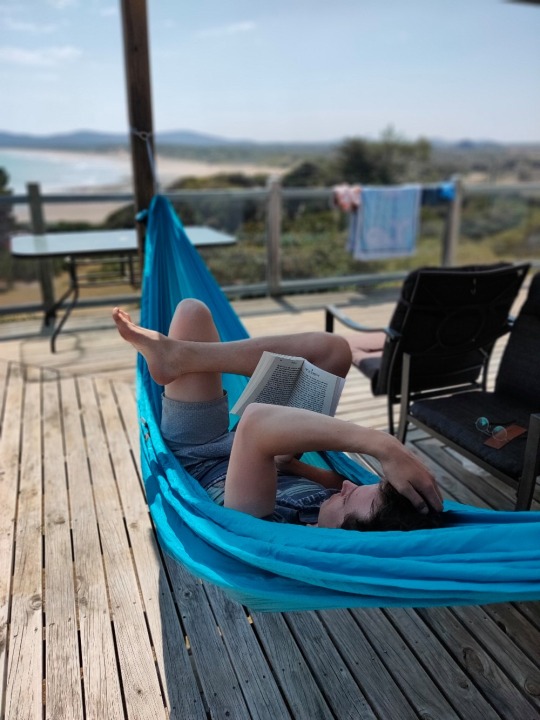
In the late, great Douglas Adams’ Hitchhiker’s Guide to the Galaxy, Ford Prefect tells Arthur Dent that “time is an illusion” and “lunchtime doubly so.” The new year sometimes feels just like that: an illusion, a fabricated creation where a year or a decade ends and begins. Perhaps these little rituals we have—these resolutions and intentions and goals—are just another thing we’ll have in the bin by the end of January, along with the final scraps of our Christmas leftovers. Yet for me the delineation has always meant more than that: I take my goals and resolutions seriously. I like closure and I like new beginnings. To me, a new year feels like opening a brand-new exercise book always did when I was a child… Arbitrary or not, it speaks of a fresh start.
In all of the ways that I know how to measure these things, 2019 has been my most successful, rewarding, happy and fulfilling year. I have loved every moment of it, and I am sorry to see it go, but equally excited to see what comes next. What do I hope for from this new year and decade? On a personal level, I have all of the usual things in my notebook: the commitment to exercise and good diet, devotion to work (including my own creative work), setting time aside to refresh, to grow, and to take pleasure in friends and family and art and the things that renew me. I want to stay optimistic, particularly as a teacher, and to continually rekindle and ignite my enthusiasm for all of things that I do and love; to focus on hard work and kindness in everything that I do. Specifically, this year I want to be clearer and more deliberate in the way that I spend my time helping others and make a greater effort to support financially charities that I feel are doing important work. My life is increasingly socially-driven, and the fatigue of a thousand micro-interactions can often be incredibly draining. I want to remind myself that in each moment and with each person I must always be curious, always wanting to know more and examine the gaps in my own perception—listening, rather than merely waiting for their own chance to speak.
I have dreams for the world this year, too. In Australia this summer we are seeing the horrific devastation of bushfires, intensified dramatically by extreme weather conditions. No matter what our differing beliefs are on the causes and consequences of the fires that blaze throughout our world, I deeply hope that we can reverse some of our exploitation of this beautiful planet. I would love for those of us who vote this year to have the courage to vote with the earth in mind, to work a little harder to minimise the waste that we produce and the amount of resources that we consume and exploit. For my part, I will be focusing on minimising and managing my travel plans and consumerism while shifting my eating habits to vegan for a majority of my meals. This year I loved reading John Marsden’s The Art of Growing Up, and in a world that continues to denigrate its young people (very much in keeping, I’m sorry to say, with cultural norms of a hundred generations before us), I would love us to turn our perceptions away from “snowflakes” and “self-absorbed teens” and a “lack of resilience” and actually listen to what our young people are asking of us and need from us. No generation is perfect, but as someone who works with teenagers every day I can attest to the way that they have continued to inspire me with their amazing compassion, their creativity, their profound forms of expression, their awareness, their acceptance of each other, and their desire to see things change for the better. In this regard, too, part of my pledge for the coming year is to believe in the students that I have the privilege of teaching: to listen to them, and to not look down on them or take them for granted. The world will one day be theirs, and we have created a lot of work for them—sometimes the best thing that we can do to help is simply to clear the way.
2019 has been particularly kind to me, but I accept that this is partly a matter of simple good luck. I know that for some of you the year will have been challenging—even incredibly difficult or heartbreaking—and that you walk into the twenty-twenties with cautious steps. If nothing else, I hope that you can be kind to yourself this year. We have become so well-attuned in our lives to the needs of others that we sometimes forget that we must fill the cup for ourselves as well. I hope that you take time to do the things that you know will renew you: to read wonderful books, to listen to an album that you once loved but had almost forgotten about, to reach out to a friend you miss, to hold an animal or a baby in your arms, or to take a moment by yourself in nature, simply to be with the world as it already was—long before you were ever part of it—with no expectation of needing to capture or share it.
I know that there is a lot that we can feel despair about, but as we enter this new era we must also recognise in the simplest terms that the world exists as it is in this moment, and optimism, hope and action are our only ways forward. Personally, and collectively, as with every new beginning, we must turn ourselves to a bigger question:
What do we want to become?
Happy new year to all of you. I hope it’s a cracker.
(📸:Me in my natural habitat, taken by Kate Tuleja.)
0 notes
Text
16 Design Symbols Your Business Can Use to Improve Its Brand Identity
Symbols are one of the earliest forms of written communication.
From cave walls to hieroglyphics to the printed word as we know it today, symbols are a powerful way to communicate concepts at a glance.
The ability of symbols to convey information, culture, and identity has made them an invaluable part of our shared visual language.
This is true not only in popular culture but also when it comes to business.
We live in a world where people and companies are recognized more for what they represent than who they are. This makes symbols a powerful and effective way of communicating.
As we emphasized in our guide on how to start a business,
A strong brand identity is the most effective way your new business can gain a competitive edge in an increasingly crowded marketplace.
Why use symbols in design?
Symbols can help customers understand your brand. As we wrote,
You can communicate a lot – and do it efficiently and effectively – if you understand your brand and make informed, thoughtful choices regarding fonts, shapes, lines, colors, and composition.
Logos, color, graphics, and text are used throughout our daily life as symbols to communicate deeply held meaning, often at a subconscious level.
Think about this effect when you see a red octagon, or an X on a map. These symbols speak to us on an almost primitive level.
As people interact with a symbol, it becomes filled with meaning.
When you see a person wearing a white coat and stethoscope you probably think that person is a doctor. The white coat and stethoscope are symbols for the medical profession.
It’s this recognition and how quickly they can communicate an idea or concept that makes them so powerful.
How Symbols Influence Branding
Companies use logos as symbols for their brand identity. As we wrote,
Your company’s logo is the visual figurehead of your brand. It’s important to get it right.
Whether every detail of a logo is intentional or not, every detail will influence people who see that logo.
Nothing should be arbitrary.
It’s in your best interest to make sure that every logo design choice is intentional and communicates the message you want to convey.
Thoughtless design choices lead to misleading or confusing logos. Or, even worse, logos that don’t say anything at all.
Symbols are a visual shorthand that businesses can use to imbue their brand identity with a deeper meaning.
While great business names can create a deep meaning too, symbols can be more powerful. You know the saying … a picture is worth 1,000 words.
Symbols create connections between your company and the ideas you want people to associate with your company.
Careful use of a symbol in your brand identity, including your business logo, can have a subtle or powerful effect (or both!).
It all comes down to what you want your brand to stand for and what you want to say.
Symbol examples
Symbols are everywhere – you can find them on street signs, food products, sports teams, even on the laundering instructions tag inside your favorite shirt.
Not sure which one to use for your business? We’ve gathered a list of the more common ones (and their possible meanings) here.
Rose
Besides love and romance, roses also can represent appreciation, friendship, passion, and much more. Here, the color of the rose is just as important as the flower itself. Roses have experienced a resurgence in popularity; the symbol has emerged at the forefront of many modern designs.
Fire
Fire conjures up thoughts of anger, passion, and destruction. It can also signify rebirth (as in the myth of the Phoenix). Fire can also convey a blaze – of energy, speed, and bright, burning passion. Look no further than the iconic Firefox, the Mozilla logo that communicates a brand dedicated to speed and durability.
Lion
The “King of the Jungle” carries with it authority, strength, royalty, and steadfastness. The power and force that a lion communicates makes it a go-to choice for any business looking to demonstrate a respectable, strong standing in their marketplace.
Wolf
The wolf is often used to show independence, freedom, the wild, strength, and guardianship. Logos that use a wolf in their design demonstrate a ferocity, agility, and clever edge that work especially well for sports-related logos.
Triangle
The triangle is connected to ideas like stability, power, harmony, women’s health, and illumination. A dynamic shape, the triangle conveys focus, balance, and innovation. When shown oriented base-down, stability and strength become clear. However, when shown at an angle, relays an energized, spontaneous feeling instead.
Circle
Circles can evoke the concepts of wholeness, completion, infinity, cycles, and also represent the self. The cyclical, inclusive feeling a circle lends a business is an effective symbol for many businesses – Google Chrome notably uses it to great effect.
Dragon
Dragons are especially revered in Asian culture and are often used to represent strength, wisdom, good luck, and potency. Dragons are commonly used in businesses looking to convey a nearly mystical power, unearthly wisdom and a fierceness that is intuitively understood by every viewer.
Tree
Trees are a common symbol for life and the outdoors. They can also signify fertility, good health, and calm. It’s a popular design symbol for a reason and can be found in many businesses seeking to emphasize their nature-oriented products and services.
Arrows
Arrows can mean direction, speed, progress. They can also point out that something is important. They reinforce the idea of movement and are great for conveying expedient service – like FedEx’s iconic negative space logo (notice the white arrow between the E and x).
Sun
The sun is a potent symbol of life, power, glory, and energy. The heat and intensity the image of a sun communicate to a viewer creates a lasting impression of warmth, endurance, and limitless power. Businesses with a focus on stamina, eternity, and prosperity are quick to incorporate the sun in their logo designs.
Moon
The moon represents the rhythm of time, peacefulness, femininity eternity, and enlightenment. The moon can be used by a company seeking to demonstrate an ongoing relationship with their customers. P&G notably uses a crescent moon to reflect their steadfast devotion to their customers through all of the phases of their days, weeks, and lives.
Flag
Flags can have many different meanings depending on the context and what color they are. White flags can mean surrender or peace, red can mean warning, attention, or caution, and blue often symbolizes freedom. Using a flag in a design can, therefore, represent a number of meanings – be careful that your color choice doesn’t send a potentially conflicting message about your brand.
Owl
Owls are synonymous with wisdom, insight, the night, grace, mystery, and learning. Education and literacy institutions are quick to adopt the owl into their organizations. The wise owl is famously used in Wise Foods’ logo – a bold decision to inspire confidence in consumer snacking habits.
Water
Water can represent life, cleaning, creation, and purity. The cleanliness and health water conveys is powerful, and can be used in a variety of forms: water droplets, waves, and rain showers are commonly used in businesses seeking to demonstrate environmental, calming, or cleansing brand values. Method incorporates the water drop shape directly into its packaging for greater impact.
Clouds
Clouds are commonly used by climate/weather businesses, but recently, have also become a major symbol of online storage. Any business that uses cloud imagery should consider their specific marketplace. Using a less literal representation is effective with technologically oriented businesses. A more on the nose approach would be appropriate for a business that deals in weather, climate, or other traditional associations.
Heart
Hearts are a straightforward way to demonstrate love, romance, and enthusiasm – the retail industry, in particular, uses hearts in product packaging, package graphics, and product design to great effect (especially on Valentines Day). Other businesses focused on health, vitality, and emotional welfare also use the symbol to great effect. Hearts are a versatile symbol and are an increasingly popular choice for a wide range of businesses.
Tips on using symbols in logos and brand identities
There are some important considerations if you want to incorporate symbols into your brand identity.
As symbols often come loaded with meaning, their use and how they can be interpreted should be weighed against your branding goals.
Here are some things to keep in mind.
Tell a story
Not all symbols are equal! It’s crucial that you do your research to ensure whatever symbols you choose are clear and concise, and add to the narrative that is your brand.
Don’t choose solely based on visual or aesthetic beauty. Tell a story.
Think internationally
Symbols can mean different things in different cultures and countries.
For example, the bald eagle may be a symbol of the United States of America to most, but to Native Americans, it is a symbol of nature and a messenger from the Creator.
Colors are another good example of a symbol that can have many meanings. As we wrote in our look at what colors say about your small business:
Culture and context can also influence how a color is interpreted. Therefore, do your due diligence and research your audience so you can make the best choices based on their specific backgrounds.
Doing some due diligence before you choose a symbol is especially important if you run an international business.
Avoid conflict
Choosing multiple symbols for your brand can have its pitfalls. You don’t want to choose symbols that have conflicting or unexpected ideas.
Symbols can be combined in very powerful ways, but research is again your best protection against unfortunate combinations.
Ultimately you want your brand to have a unified message, and whatever symbols you choose should help and not hinder this.
Be intentional
Successful logos have a meaning behind them.
These powerful logos make a lasting impact because they communicate your brand’s message in a compelling, effective way.
A thoughtfully used symbol gives your logo the powerful impact your brand needs to stand out in the marketplace.
Make sure that you choose a symbol or two that form a strong connection to your brand’s values, mission, and personality. If you aren’t careful and considered in choosing a symbol for your logo, you risk sending confusing, mixed, or even negative messages to your customers.
Be intentional with the symbol you choose and that it clearly supports the brand persona you’re presenting.
Conclusion
Symbols are powerful, and they can evoke almost subliminal connections and meanings. For companies eager to join memorable concepts with their businesses, symbols can create brand equity. As David Asker wrote in Managing Brand Equity:
When products and services are difficult to differentiate, a symbol can be the central element of brand equity, the key to differentiating characteristics of the brand. The symbol can by itself create awareness, associations, and a liking or feelings which in turn can affect loyalty and perceived quality.”
If you’re looking for ways to connect your brand message on a deeper level with your consumers, symbols may be just what you’ve been looking for.
from http://bit.ly/2PxLSxw
0 notes
Text
The World Cup Was A Grift, Just Like Everything Else
New Post has been published on https://latestnews2018.com/the-world-cup-was-a-grift-just-like-everything-else/
The World Cup Was A Grift, Just Like Everything Else
Before Sunday’s World Cup final, FIFA President Gianni Infantino engaged in the sort of host-country backslapping that is routine at international sporting events. “For a couple of years, I was saying it would be the best World Cup ever. Today I can say that with more conviction,” he said at a press conference.
This, for once, was not merely public relations drivel. The tournament, if not everything around it, really was the most entertaining World Cup in a generation. Russia’s run to the quarterfinals, the limey jubilance of “It’s Coming Home,” Mexico and South Korea sending Germany out early, the 19-year-old Kylian Mbappé turning into Pelé right before our eyes ― it was all outstanding to watch, and by most accounts outstanding to attend as well. It culminated in a six-goal final that crowned France as champion.
But just a few minutes into that final, football fans the world glimpsed a stark reminder of how ugly the World Cup can be off the field. A television camera showed Russian President Vladimir Putin and Infantino smiling and laughing together in a VIP box high above the field at Moscow’s Luzhniki Stadium. Here was the man whose country had bought the World Cup through bribes and the man whose obscenely corrupt organization had been all too willing to sell it to the highest, dirtiest bidder.
The essence of the World Cup lay somewhere between the two images. The incorruptibly beautiful soccer on the pitch, unmarked even by France’s reputation for negative football, playing out beneath the corrupt and corrupting men who otherwise run the show.
Infantino and Putin had good reason to share a triumphant moment. Both entered this World Cup with a single goal: to bolster their legitimacy ― politically, socially and globally. They were using our collective interest in the world’s most popular sport and the obscenely talented men who play it to cover up their autocratic self-dealing, and with so little shame.
ALEXEY NIKOLSKY / Getty Images
Infantino and Putin in a VIP box at the World Cup final between France and Croatia on July 15.
There is little doubt now that the Russians bought hosting rights for the 2018 World Cup with under-the-table payments to members of FIFA’s executive committee, several members of which were arrested in Zurich and indicted in the United States three summers ago. Despite tips from British spy Christopher Steele (of Donald Trump dossier fame) that Russia engaged in corruption to win the World Cup hosting rights, the U.S. Department of Justice indictments largely failed to touch Russia, in no small part because the Russian bid committee destroyed its computers immediately after the vote was held in 2010.
But in the months before this World Cup, and especially once it began, the international media paid hardly any attention to the dirty stuff underlying it all; we spent little time scrutinizing the $11 billion Putin and Russia spent to put on the tournament.
This was not an accident. If the World Cup looks like a political masterstroke from Putin and Infantino, it’s because the Russian leader was never going to let it end any other way and FIFA was always going to go along with whatever sort of authoritarian measures Putin wielded to ensure his beautiful spectacle.
Russian dissidents, whistleblowers and critics of Putin’s government have a curious habit of turning up dead, as Boris Nemtsov, who spoke out about corruption tied to the 2014 Sochi Winter Olympics, did in 2015. Journalists and other critics of those Olympics were imprisoned or exiled, and in the years before the tournament, Putin’s Russia enacted further crackdowns on dissent and press freedoms. That has made it “more difficult to report the news” and placed journalists “under extraordinary pressure to avoid investigating Putin,” Josh Fine, a senior producer at HBO’s “Real Sports,” told SportsBusiness Daily after his show aired a segment on Putin’s targeting of journalists and political dissenters in June.
“There are still some brave Russian reporters who cover these matters but the numbers dwindle every year,” Fine said. “Relatedly: the government appears to have prophylactically locked up some reporters ahead of the World Cup so as to ensure they won’t decide to do this kind of reporting during the event.”
There’s little reason to believe that FIFA is any cleaner today than it was the day Swiss police raided that hotel in Zurich.
Russia denied visas to foreign reporters who had chronicled Russia’s World Cup corruption, and with few journalists able or willing to scrutinize his dealings locally, there was hardly anyone equipped to challenge the image of Putin’s rosy World Cup the way the domestic and international press did in Brazil just four years ago.
The country’s improbable run to the quarterfinal in the tournament provided Putin with yet another blessing. Russia’s victory over Spain in the round of 16 thrilled even his loudest political critics, and it had the effect of depoliticizing a deeply political event even further. (Contrast that, for instance, with the way Brazil’s shattering semifinal loss in 2014 only highlighted the nauseating nature of that spectacle.)
Only Pussy Riot, the anti-Putin punk band and political resistance group, had the gall to interrupt the party, when four of its members invaded the pitch in the second half of Sunday’s final. It was a brief disruption that “created, on one of the biggest stages in the world, an image of unjust and arbitrary authority, the sort with which a hundred and forty-five million Russians live day to day,” The New Yorker’s Masha Gessen wrote. But it has hardly seemed to puncture the overall perception of the World Cup as a joyous, unifying success.
When Russia won the right to host this World Cup, Jérôme Valcke — then FIFA’s secretary general, who later resigned amid corruption charges — declared the vote “the end of FIFA,” thanks to the overtly corrupt nature of it all. But eight years later, FIFA and Infantino were ready to party. They, too, needed a win.
FIFA, we have learned since the previous World Cup, was a pioneer in the field of organized sports corruption. That bribery and graft had greased the wheels of global soccer for decades was the world’s worst-kept secret, but the DOJ’s indictments cost FIFA numerous corporate sponsorships and loads of money. FIFA needed a glorious World Cup, if for nothing else than to repair its image just enough to bring those sponsors and their money back into the fold.
There’s little reason to believe that FIFA is any cleaner today than it was the day Swiss police raided that hotel in Zurich, and Infantino, who took over shortly after President Sepp Blatter resigned in disgrace in 2015, has built his presidency on the same sort of patronage that underlies so much corruption anyway.
But the football was beautiful, and the stadiums were too, and God, a World Cup finally went off without a hitch, and so for all the anger directed at FIFA over the last three years, Infantino faced not a single question about corruption or the status of his beleaguered organization at the prefinals press conference. (The Ghanaian Football Association, you may not have heard, was shuttered just a week before the World Cup began, after several of its executives were caught taking bribes. Nothing to see here.)
YURI KADOBNOV / Getty Images
The day after the World Cup final, Putin presented President Donald Trump with a commemorative soccer ball. Trump congratulated Putin on hosting the World Cup, then denied that Russia had interfered in the 2016 U.S. presidential election.
On Monday, Putin won a hearty congrats on the tournament’s success from Trump during a joint press conference in Helsinki, and Putin responded by handing his buddy a commemorative World Cup ball. It was almost poignant, the two men — one of whom had followed up the last international sporting event he hosted by interfering in an election just months later and the other the corrupt wannabe authoritarian who now occupies the White House after winning an election tainted by Russian manipulation — celebrating together. How Putin will spend the domestic political capital the World Cup helped him build is unknown, but he’ll surely spend it somewhere.
“The last time Russia did well in a global sporting event, Putin, riding high, invaded Ukraine — twice,” Julia Ioffe wrote in The Washington Post after Russia’s upset victory over Spain in the round of 16. “Let’s hope that this time, he does something more benign, or just lets his country celebrate for the sake of it. But if you’re hoping for that … don’t hold your breath.”
International sporting events, meanwhile, have terrible human rights records even when they’re not held in the country of a murderous dictator presiding over what Human Rights Watch called “the worst human rights crisis in Russia since the Soviet era,” so it seems worth heeding the concerns of LGBT activists and other political dissidents who fear that the lax-by-Russian-standards attitude toward them from Putin and the police during this monthlong party won’t last either.
As for FIFA, it’s only going to get worse. The 2022 World Cup is in Qatar, where the most direct price of FIFA’s corrupt practices could be as many as 4,000 dead construction workers. Despite what you may have read in USA Today, the worst part of the Qatari World Cup won’t be the oppressive heat or the lack of beer, because Qatar is also ruled by a repressive regime, which utilizes a labor system that international human rights groups have equated to modern-day slavery. The Qataris have made some incremental changes, but only the next four years and beyond will tell us whether that progress is real or if Qatar is merely papering over its problems to please the world for a month or so. Either way, at least several hundred foreign workers who went to build World Cup stadiums are probably already dead.
Qatar has not been shy about its efforts to use soccer to cover for its atrocities. The petrostate last year spent gobs of money to help one of the clubs it owns, Paris Saint-Germain, buy the star Brazilian forward Neymar from Barcelona, one of the clubs it used to sponsor. The weird scheme to pull together enough money to send the ever-marketable superstar to Paris involves making him an official ambassador for the Qatari World Cup.
Benoit Tessier / Reuters
Neymar, a star forward for Brazil and Paris Saint-Germain, has signed on as an official ambassador of the 2022 World Cup in Qatar, which utilizes an oppressive labor system that human rights groups have likened to modern slavery.
And don’t expect those corporate sponsors that ran away from FIFA amid the corruption charges to stay out of bed with this band of grifters now. Fox set viewership records for a tournament that didn’t even include the U.S. men’s national team, and on the day before the 2018 World Cup began, FIFA voted to hand the 2026 version of the tournament to a joint bid from the United States, Mexico and Canada. That’s a big stack of cash in one of soccer’s few underdeveloped, superwealthy markets. The united bid estimated that it would generate $11 billion in revenue for FIFA and an untold amount for its sponsors — more than enough to remind at least several of our corporate overlords that they’ve never had any morals anyway.
It’s horrific stuff all around, and yet it’s never felt more pointless to challenge it. Russia’s World Cup was always going to end this way, with Putin and Infantino celebrating that they made us all for marks again. Four years from now, in a stadium built by slaves, the episode will repeat itself.
It was nice to believe, for a few hours each day, that the World Cup offered a bit of respite from the perils of the world around it.
That Paul Pogba’s glorious passes and Romelu Lukaku’s brilliant runs were a safe space away from election interference and an impending sense of doom.
That cool goals ― look at that Ben Pavard volley! ― and fingertip saves and riveting, last-second results could provide us with even momentary bits of happiness.
That, even when it was a bit political, France’s and Belgium’s and Switzerland’s teams were made up of the children of immigrants and Mexico’s popularity north of its border could serve as a rebuke to the ugly xenophobia plaguing Europe and the United States.
That soccer could show us that good things are possible in hopelessly corrupted contexts.
But then there were Putin and Infantino, grinning like chimps, reminding us that even the good stuff in the world exists chiefly for the pleasure of crooks.
http://platform.twitter.com/widgets.js
!function(f,b,e,v,n,t,s)if(f.fbq)return;n=f.fbq=function()n.callMethod?
n.callMethod.apply(n,arguments):n.queue.push(arguments);if(!f._fbq)f._fbq=n;
n.push=n;n.loaded=!0;n.version=’2.0′;n.queue=[];t=b.createElement(e);t.async=!0;
t.src=v;s=b.getElementsByTagName(e)[0];
s.parentNode.insertBefore(t,s)(window,document,’script’,’https://connect.facebook.net/en_US/fbevents.js’);
fbq(‘init’, ‘1621685564716533’); // Edition specific
fbq(‘init’, ‘1043018625788392’); // Partner Studio
fbq(‘track’, “PageView”);
fbq(‘track’, ‘ViewContent’, “content_name”:”The World Cup Was A Grift, Just Like Everything Else”,”content_category”:”us.hpmgspo” );
fbq(‘trackCustom’, ‘EntryPage’, “section_name”:”Sports”,”tags”:[“@health_gad”,”@health_depression”,”@health_models”,”@health_erectile”,”@health_ibs”,”russia”,”vladimir-putin”,”soccer”,”fifa”,”2018-fifa-world-cup”,”gianni-infantino”],”team”:”us_enterprise_culture”,”ncid”:null,”environment”:”desktop”,”render_type”:”web” );
waitForGlobal(function()
return HP.modules.Tracky;
, function()
/* TODO do we still want this?
$(‘body’).on(‘click’, function(event)
HP.modules.Tracky.reportClick(event, function(data)
fbq(‘trackCustom’, “Click”, data);
);
);
*/
);
0 notes
Note
15, 17, and 30 (‘cause you can always pick a different quote)
15. five most influential books over your lifetime.
Mill on The Floss
Pride and Prejudice
Brideshead Revisited
Jane Eyre
Eliot family trilogy (Elizabeth Goudge)
Bonus: Romeo and Juliet, The Code of the Woosters, Far From the Madding Crowd, In This House of Brede, All Jane Austen
17. would you say your tumblr is a fair representation of the “real you”?
I would! Fulton Sheen girl went through my tumblr after we had talked for a while and gone on several friend dates and she laughed and said “I feel like that is 100% Maria and so far in real life I’ve only seen about 85%”. Tumblr is really where I put so much I think and feel and don’t share with anybody else. It’s the depths of my heart and also of my annoyances. Truly.
I WILL say that i sometimes feel like tumblr is still a very prettified version of me? My icon and blog color and general aesthetic help me seem less messy than I do in real life and don’t always deserve the impression I create because I reblog Chesterton quotes and butterflies and talk about love and care very deeply about how my blog looks and feels. In real life I’m very flawed. Very.
I do rant a lot here too though so also. Yes. I’m the exact same.
30. Pick a favorite quote.
This is maybe a surprising choice but this one by Mindy Kaling on why she doesn’t diet or anything is so important to me.
My secret is: Even though I wish I could be thin, and that I could have the ease of lifestyle that I associate with being thin, I don’t wish for it with all of my heart. Because my heart is reserved for way more important things.
This helped clarify a lot for me when I first read it in college because there are so many things I want or wanted, or thought I wanted, and I would always vaguely be like “why am I not going after that with all my heart”, like getting a perfect GPA or training really hard or exercising or doing ambitious things and I always thought the answer was just because I was lazy and that’s still often true but even truer is the reality that ultimately I didn’t want those things badly enough and that was okay.
Mindy really made me see, just in this quote, that I don’t have to give my whole heart to arbitrary things if I don’t want to, or exterior goals, and certainly not to society’s arbitrary and harmful standards of beauty. I used to not always know where to direct my heart and so I’d listen to songs and movies and be Stressed (TM) that I didn’t have a dream. Seriously when i was younger I was like “I don’t have a dream, should I have a dream? All the people in movies have dreams, should I be working towards it? Sacrificing my life for it? I could be a ballerina if i WORKED HARD. REALLY HARD. Slaved away. should I??” And that’s just. Laughable now but distressing then. Why should my self-worth be threatened because I wasn’t obsessed with one specific thing and determined to wreck everyone’s peace of mind because I wanted something??
Mindy taught me healthy apathy which I probably take too far now. I don’t exercise, at all, I don’t get enough sleep and I’m trying to find ways to be better about taking care of myself and trying to find the right reasons to do it but still I needed the lesson she gave me.
And that’s mostly because Mindy was the first person I heard who really articulated how much work looking “perfect” takes and how justified you are in choosing not to do that work. You can say no. You can say that getting up absurdly early or working out five times a week or spending money on beauty products is too much. You don’t have to “push yourself to the limit” or “make no excuses” about your workout regimen or skincare regiment. You can not care. You can care less.
At the end of the day some things are not worth caring about and if we want to grow up we have to get over thinking we have to care about them. And when we do that we can reserve our heart and energy for what matters, what really matters.There’s so much freedom in that and Mindy helped teach me that.
#apesoformythoughts#thanks for asking!!#great questions!!!!#just to be clear#i think it’s totally natural and on some level important to care about your appearance#and presentation to the world#i think it MATTERS#but that doesn’t mean working hard for it is necessary#there are a lot of nuances here but i think we need far simpler standards of what caring about your looks look like#especially re: things like the weight issue and ridiculous pressure to be thin#like mindy is discussing here
10 notes
·
View notes
Text
How to get a date
“Women in 2017 are desperate for good, honorable, decent, and kind men to date,” Jordan McGillis recently wrote.
Thus began a post in response to this: “Somewhere in the world, there is a kind, decent person who can’t find a date. Richard Spencer has a beautiful wife. This is yet another reminder that the world isn’t fair.”
McGillis went on:
The writer implies being kind and decent is enough to deserve women’s attention. I disagree. Being kind and decent is necessary to being a good man and a worthy date, but it’s far from sufficient.
If you’re a kind, decent person “who can’t find a date,” it isn’t a matter of cosmic unfairness, but almost surely your own lack of initiative. Consider taking the following eight steps to make yourself date worthy:
1. Get a job.
One that challenges your faculties. One that allows you to feel pride in your performance. One that you’re excited to talk about.
An obvious benefit of your job will be the funds it provides. These will be necessary to pursue the lifestyle steps I’ll outline below. It will also, of course, allow you to pay for the dates themselves, a role which you will assume as the good, honorable, kind, decent man you’re striving to be.
The more important benefit will be the sense of purpose and structure your job will bring to your life. If you’re a student in pursuit of a meaningful degree, the purpose element of your job isn’t as important, but you still need some money if getting dates is something you want in your life. So get a job.
2. Lift weights.
In a post-industrial economy your brawn is of very little importance. Even in emergency situations such as the aftermath of natural disasters a quick mind is a far more valuable asset than a strong body. But lifting weights has benefits beyond the strength it will help you build.
Lifting weights gives you a sense of efficacy and develops a challenge-conquering mindset. No matter how little experience you have, it will help you build confidence in yourself because with any effort input whatsoever you will improve, mentally and physically. (In fact, the less experience you have, the more profound your growth will be.)
Perhaps most importantly, it will imbue your life with goal-directedness. (This is especially important if you haven’t yet secured a job that fills that need.) Along with the goals and achievements you’ll begin to crave, lifting weights will help to order your life and supply positive emotional momentum.
A secondary set of benefits from lifting weights is the physical changes you’ll undergo. It will improve your testosterone production, your ability to generate power, and your physique. Which leads to the next point��
3. Gain ten pounds or lose ten pounds.
Ninety nine percent of men need to do one of these two things. You know which end of the spectrum you’re on.
4. Cook your own food.
In addition to saving you money, this will help you with your weight gain/loss and your health generally. As a broad principle: increase your intake of vegetables, meats, fish, and eggs. Decrease your intake of grains. Be selective with your alcohol consumption.
On top of the savings and the body composition improvements, a man’s ability to cook seems to be attractive to women for some reason. Develop three go-to meals for your weekly consumption and learn one more complex recipe.
5. Comport yourself with dignity.
With the physical changes your cooking and lifting will yield, you’re well on your way. Your next step is to carry yourself in a gentlemanly fashion. Stand with your shoulders back and your trunk braced. Walk with a purposeful stride. Stop looking down at your phone in public. Consciously de-program any annoying tics you’ve developed. Ask someone to help you identify them if you don’t think you have any.
Get a haircut. A simple, traditional style that promotes the masculine elements of your face is best. If you have the requisite follicle density, consider growing a beard. If your facial hair is sparse, do not under any circumstances grow a beard.
Before leaving the house each morning, comb your hair, brush your teeth, and throw on some deodorant.
Once you’ve gained ten pounds or lost ten pounds, buy a few new articles of clothing that fit you appropriately, i.e., not long or baggy. If you don’t know what you should get, start with a dark pair of jeans and a sportcoat. This is a tried-and-true date-acquisition combo.
Lastly, learn to hold eye contact, be courteous, and smile.
6. Cultivate your interests.
People who are passionate valuers are attractive. Apathetic people are not. Pursue deeply the things you find interesting. Don’t worry about whether women find these same things interesting. First of all, some of them will, but whether they do or not, deep interest and expertise in literally any subject matter will make you a more attractive man. Few things can captivate a woman more fully than a man who knows what he’s talking about.
7. Join a club, team, or association.
If you’re struggling to find dates I think we can safely bet you aren’t the savviest operator on the bar and party circuits. Put yourself in situations where you feel more comfortable. Find a group of people who share the interest you’ve been cultivating and spend time with them regularly. If the group you join isn’t co-ed, the friendships you develop will help you find social circles in which you’ll feel at home and hopefully find those prospective dates.
(For optimal efficiency in this date-procuring process, join a CrossFit gym. This will fulfill your lifting requirement and put you in a co-ed, rapport and camaraderie-fostering environment several times a week. Within six months of starting CrossFit, sign up for one of the big regional competitions–here in DC, for example, sign up for Flex on the Mall. Not only will your looming competition motivate you to train with more focus, but the moment you walk into the venue you’ll recognize that CrossFit competitions are a date-procurement Holy Grail.)
8. Ask a woman on a date.
This is the simplest step, yet for many the most daunting. Men who complain about not being able to get dates all too often simply take no action to this end. As my friend Patricia suggested, “Ask a woman on a date, in person, or by phone and not in a text message. Plan the date, show up on time, and be present.” Amen.
——
Is this list exhaustive? Of course not. But a man who has a job, who lifts and cooks, who comports himself with dignity and cultivates his interests AND is kind and decent is a man worthy of a date. And if he’s joining or forming social groups of likeminded people I think he’s done his part.
What I have not commented upon at length here are the interpersonal habits, practices, and tactics that are undoubtedly a critical component of achieving any objective that entails other people. It’s quite possible that these are the only elements that any given dateless man is missing; though important, I don’t think they’re germane to the original fairness and moral worthiness question. After all, many a man has secured date after date without a hint of goodness, honor, kindness, or decency. While date-capable and skilled, I would hardly consider such a man date-worthy.
So then Grant Babcock responded with this article in which Scott Alexander gets defensive about women’s angry reaction to men acting like shitbags while mostly ignoring the shitbag behavior from men because it’s not aimed at Scott Alexander.
In this case the shitbag behavior is being unwilling to do the work to be at all romantically attractive and also being openly angry at women for not wanting to fuck them anyway because men feel entitled to women’s bodies regardless of what they bring to the table.
“Making fun of people for being unattractive and unhappy is its own reward,” Alexander writes. Except the women are not making fun of men for being unattractive and unhappy. If Alexander had actually read the posts he excerpted, he’d find women making fun of/complaining about men for being unattractive and unhappy and unwilling to either get more attractive through self-improvement, accept their singledom, or lower than arbitrary standards and also being openly angry at women for not fucking them. “I don’t think I ever claimed to be, or felt, entitled to anything,” Alexander writes. THEN THE FEMINISTS AREN’T TALKING ABOUT YOU NOW ARE THEY?
First Alexander admits that women are making fun of/complaining about men not for being unattractive and unhappy but for being entitled assholes by citing the Nice Guy vs nice guy distinction. Which is to say there are genuinely well-meaning but clueless unattractive and unhappy guys who are not entitled or angry. Those are nice guys. Then there are Nice Guys, who are angry and entitled. Just because you, Scott Alexander, aren’t entitled doesn’t mean these men aren’t out there making women’s lives more difficult in great numbers. But then later in the post he goes right back to straw-manning feminists, saying they “mock and despise men who were sad about not being in relationships.” Uh, again, no.
Then Alexander tries to compare capitalizing Nice Guys with capitalizing Poor Minorities. Because shitting on men who are angry and entitled is like shitting on people who have been marginalized through no fault of their own. It’s amazing how hard it is for some men to wrap their minds around the fact that some men *choose* to be entitled asshats, even when women are explaining in great detail how, when, and where they are doing so.
The truth is that I very much empathize with people who have trouble finding dates. Reading came way more naturally to me than socializing.
Learning that I could, and should, learn how to people was also a turning point in my life.
I agree with McGillis in that the “laundry list” he details above certainly matters. Shit that you can only do so much about — your height, your attractiveness, your muscle composition, your intelligence, your employment — unfortunately people do care about those things. Having more of them makes you more attractive, all else equal. That’s why you should do what you can with what you have. That’s his point.
However, I think he gives short shrift to the fact that all else is hella not equal. I’ve come to learn that when it comes to finding dates, how pretty and young and smart and high-earning I am pales in comparison to something as simple as learning how to smile at men. Watching women much less all of those things than me get dates when I couldn’t was extremely instructive. Being nice is really way more important.
Shit you can learn, how to be genuinely interested in and genuinely affectionate towards other people, how to look for ways to meet their needs, how to show you care, all these things matter much more to “soul mate finding” than the laundry list. 99% of people, basically anyone who is not a celebrity of some sort, and most of them probably too, are absolutely desperate for anyone to take a genuine interest in their inner lives. When it comes to supply and demand (and that’s what dating is; they call it a dating market for a reason) people with fit bodies and high paychecks are in way more abundance than people who are able to really listen.
Becoming genuinely interested in and genuinely affectionate towards other people is something that is simple, but hard. It’s hard because we’re all naturally self-absorbed. Anxiety makes me self-absorbed. Being prone to feeling rejected, any kind of pain really, makes me self-absorbed. Being tired makes me self-absorbed. Being intimidated, feeling like I need to prove I’m worthy so looking for ways to make myself look good, these are all things I find myself doing instead of actively listening. If I had to summarize the one thing that’s keeping everyone more lonely than they need to be is that we’re all so much more focused on being accepted than accepting others. We want to be approved of more than we are working on approving of others. The thing is, it’s very difficult to accept and approve of others if you haven’t accepted and approved of yourself. That’s really where the laundry list comes in. The laundry list helps you feel good enough about yourself to not be self-absorbed with insecurity when you’re trying to connect with someone else.
As long as you’re not eliminating potential partners because of your expectation that they meet the laundry list, and as long as you can accept and love yourself for who you are, the laundry list isn’t necessary. It’s just a tool.
“A man who is kind and decent, but has done nothing to develop himself into a man worthy of admiration and attraction is not date-worthy,” McGillis wrote. But that’s the thing. Being kind and decent, by which I mean cultivating a genuine interest in and affection for others, is itself worthy of admiration and attraction. It is in fact more valuable than anything else you can possibly do. If you can manage it, you will not lack for dates.
How to get a date was originally published on
0 notes
Text
(function(d, s, id) { var js, fjs = d.getElementsByTagName(s)[0]; if (d.getElementById(id)) return; js = d.createElement(s); js.id = id; js.src = "//connect.facebook.net/en_US/sdk.js#xfbml=1&version=v2.10"; fjs.parentNode.insertBefore(js, fjs); }(document, 'script', 'facebook-jssdk'));
Feet up and resting the day before Ironman Lake Placid, I scrolled through Facebook and saw this post from my friend and fellow coach Mary:
The next morning, I stood on the beach of Mirror Lake, waiting for the 2017 Ironman Lake Placid to begin. In that moment, I lived a different present than the last time I raced an Ironman, 3 years ago.
When I first registered for IMLP 2017, I wanted to chase my Ironman past. I felt like I had unfinished business with Lake Placid. I had goals for Ironman – back in 2013 and 2014 – that I didn’t achieve. I thought – for almost this entire season – that I was chasing those goals from the past. Yet, experience changes us. Those goals, while still in my mind, were no longer my priority as I stood waiting for the race to start.
I had changed. What I wanted from the day was not what I originally believed it would be.
Labels on my bike reminding me of what is most important on race day.
As I listened to the Star Spangled Banner, and soaked in the race morning energy, I wanted a day full of joy and gratitude for moving my body, being with community, and celebrating life.
But, that’s not a very sexy goal, is it?
We love the small-town-girl-makes-it-big-and-fast headline. The small-town-girl-finds-gratitude-and-joy isn’t quite as titillating. But it is a lot more rewarding for this small town girl.
As Mike Reilly, the voice of Ironman, counted down the moments until the start, I realized that this day – this 2017 Ironman Lake Placid – was about my experience.
What experience did I want?
Simple: I wanted to have fun. All of the fun. Every piece of fun there was to have – I was going after it. I wanted to find joy and gratitude no matter what the day would bring.
The last time I raced Ironman, I fought for several years to find my way to the Big Island. That singular focus – all Kona, all the time – was rewarding. But, that goal led to very particular types of race experiences. After a while, racing that way just started to feel like a job, and it stole too much of my joy.
The first time I raced in Lake Placid in 2010, I had so much fun, felt so much joy – I just wanted to feel that way again – not just at the finish line, and not because I “beat” some arbitrary time or person.
I set my intention on the shores of Mirror Lake, and that’s how my day went. Exactly. Like. That.
I swam, I biked, I ran. But, it’s not the movements that matter – it’s the moments. I have some precious moments that I remember from this race.
Can’t shake that smile
Coming out of the swim, heading to T1. What a shame I wasn’t having any fun here. 😉
After the initial rush of the swim start, I found my way to the famed underwater cable that lines the Ironman Lake Placid swim. I smiled and thought: There you are, my pretty.
That smile and my attention to the task at hand stayed with me all day.
In previous years, I didn’t smile that much, for fear that it was a “waste of energy.” On this day, it was quite the opposite. I felt the energy that a smile brings to your mind and soul.
This smiling doesn’t mean that I didn’t work hard. I did.
It doesn’t mean that I didn’t have some seriously uncomfortable moments. I did.
It doesn’t mean that the race didn’t hurt. It totally did.
It is normal to feel uncomfortable during a race that lasts all day long. For me, endurance sport is rewarding because I can find those edges and learn just a little bit more about myself in those moments. I can cower to the pain, or I can choose to enjoy all of the moments and sensations for the teachers that they are.
We don’t have to choose misery over joy.
Bike handling skills are not overrated
I rode the Keene descent in training for the first time a little over 8 years ago. On that day, I crushed the ulnar nerve in my hand from braking so hard.
Flash forward to July 23, 2017:
Coming in to T2 – all the smiles!!
I saw the first set of fluorescent signs that signal the descent is coming. I felt the headwind pushing against me. I tucked myself into aero and let the bike go. Instead of panic, I smiled into the speed.
I felt the wind on my teeth.
For the first time in 8 years of riding this course, I started the descent in aero–and I liked it.
As the descent got steeper, and a bit more twisty, I continued to let the bike go.
I cornered the way you are supposed to, outside leg down, inside knee out, leaning the bike into the turn. I focused on the execution of the movement, and in doing so, I had no need for panic or anxiety.
This moment is one of my favorites from the day. I was a dog, hanging its head out of the window during a car ride, enjoying the freedom of the open road.
Yeah, that much fun. All of the work I put into bike handling this year came together in these precious moments. I can still feel the wind as it whipped around my body; I can feel the smile as it snaked around my face. It is a memory bubble I won’t soon forget. *weeps*
Calm under pressure
During the second loop of the bike – as I was taking that very first climb up 73 out of town – my chain dropped. I got the chain back on, but it kept dropping – even though I was not shifting.
Um, that’s weird.
After a few more miles, a few more drops, and fiddling around with my options, I realized that if I kept the gearing at either the top or the bottom of the cassette, the chain would stay on. (Yes, also really weird – but that’s what worked.)
So much bike joy despite mechanical snafu. This snap was taken by friend Bill & Amy, who caught me coming up Papa Bear. Having all of the fun 🙂
I had two working gears in the back, and I could switch between the small or big ring. Yes, race fans, that combo left me with 4 possible options on a course that climbs and rolls and cajoles for the entire loop.
The “me” of the past would have freaked out. She would have focused on how this would “ruin” her KQ chances, how much time she was losing, and on and on. She may have let her emotions get the best of her, rather than working the problem.
In that moment, I didn’t even teeter on the verge of emotional collapse. I adapted. Was it ideal? No. Most of that second loop, I was either spinning easy or grinding hard. Most of that second loop, I still smiled.
I knew I was losing time, but I had a choice to focus on what was in my control or to waste energy lamenting what I couldn’t fix. I focused on the fact that I felt pretty dang skippy.
This is a gift
I made the right turn up Mirror Lake Drive on my way to finishing the first loop of the run. We had set up a tent along this area, so I knew my friends and family would be here – somewhere – I looked for them eagerly.
My girls guarding the No Limits Endurance Coaching headquarters during the race. ❤
As I came up the road, I heard them before I saw them – these people that are so important in my life, and making that connection I felt so deeply appreciative for their love and support.
I see my husband John’s face, smiling, screaming: “You got this, Maria!”
I see John’s parents – our biggest fans Jeanne and John – screaming my name and clapping.
I see the faces of my friends, yelling, “Maria!” “Go Diesel!” “You are killing this!”
I returned their cheers with victory yells of my own. It felt so good to be this happy. I was out there crushing my goal to have fun. I mean CRUSHING it. I pretty much stole all of the fun. My apologies to the other racers for not leaving anything for them.
Someone is happy to be off the bike. Maria Simone #slomo
Posted by John Jenkins on Sunday, July 23, 2017
My second time up the Lisa G’s hill (you know, the big hill up 73 into town), there was a woman who stepped into the road, pointed at me and said, “You have a gift. You haven’t stopped smiling all day!”
Thinking about that moment now, I don’t have a gift, so much as I have been gifted. I have been given the gift of movement, the gift of friendship and community, the gift of the present moment.
As I ran into the Olympic Oval for the finish line, I smiled in every cell of my body. The entire day was magical – and this final 200 yards is sprinkled with just a little bit of extra fairy dust.
I slowed my pace. I wanted this moment to last…and last. This race is so special to me – maybe because it’s the longest running Ironman in North America, or it is positively beautiful, or it was my first Ironman–or very likely because all of the people I share it with make my life a gift worth having.
This season and this race have changed the way I approach and assess racing. In the past, I would have been disappointed with this race because it wasn’t my fastest, and I was shy of the podium. I am rarely satisfied when I judge a race by time or placement. No matter what: I always want to be faster. And, this is still true with this race. Yes, I wish I was faster.
But, as I write this, I’m using a different set of metrics to evaluate the experience of this race. I’m grateful for the moments I had and the memories I won’t forget. When I finished Ironman Lake Placid in 2010, I experienced a sense of joy and empowerment that I had never felt before. Since that time, I’ve been chasing that high – and I never thought I would feel that way again.
Yet, I did.
No Limits Racers – team picture!
No Limits Racers – silly picture!
I made these signs for the crew 🙂 My artistic skills are pretty amazing, I know.
Part of our village – post race. (Thanks for the chair! hahahaha!)
Reflection…
The morning scene at the tent
Getting suited up
Picture with the rock during our shake out swim
Pre-race breakfast fun 🙂
Suns out, tongues out!
Brekkie!!
The Gift of the Present: 2017 Ironman Lake Placid Race Report Feet up and resting the day before Ironman Lake Placid, I scrolled through Facebook and saw this post from my friend and fellow coach Mary:
#endurancesport#imlp#ironman#ironmanlakeplacid#ironmanracereport#Ironmantriathlon#lakeplacid#racereport#swimbikerun#Training
0 notes
Text
Royce Kurmelovs
Royce Kurmelovs is an award winning Australian journalist and author whose work has been published online and in print by Al Jazeera English, The BBC, CNN, The Guardian, VICE, The Saturday Paper, The ABC and others. He is the author of three books, with his fourth on the high level of Australian indebtedness due to be published by UQP in August 2020.
Royce Kurmelovs is an author of The Death of Holden (2016), Rogue Nation (2017) and Boom and Bust (2018). He lives in Adelaide, South Australia.
What are one to three books that have greatly influenced your life?
It depends on what period of my life you are talking about. When I was younger, the book that had the biggest impact on me was Catch 22. People might rave about dystopian novels like 1984, but Catch 22 offers something deeper: you get a critiques of capitalism, authoritarianism, masculinity and bureaucracy in one beautiful, absurd package told with a striking sense of humour. It also helps make sense of the world we currently live in.
When I grew older, Etgar Keret's The Bus Driver Who Wanted To Be God had a profound influence for the way he told simple stories, always with a twist, in a conversational way.
The last has been Charlie LeDuff's Work and Other Sins which is a collection of profiles and other journalistic works from his time at The New York Times. He showed me how to be a reporter.
What purchase of $100 or less has most positively impacted your life in the last six months (or in recent memory)?
As a working freelancer, life can be pretty risky, but a month or two back I upped my membership with the Australia journalists union, The Media and Entertainment Arts Alliances which gave me insurance coverage I haven't had before. Having that sort of protection has been professionally life-changing. You don't realise how exposed you are when you're out here doing it on your own.
How has a failure, or apparent failure, set you up for later success?
Truth be told, I am expert in the art of screwing up, so there are really too many moments to tell. One of my favourite professional screw ups, early on, was applying for a job in a magazine and turning up in the wrong outfit, saying the wrong things, and not getting the job. The person who did the interview explained, with great seriousness, how an established local reporter was working with them.
Needless to say I didn't get the job, but a year later I had published my first book that went on to be a best seller. That inability to catch a break early on made me more determined. Screwing up, after all, is how we learn stuff. The only real failure is the failure to learn from our mistakes.
Are there any quotes you think of often or live your life by?
I try not to, to be honest. The circumstances that define one life do not so easily apply to -- and often do not exist for -- another. Each of us has to find out own way in the face of great uncertainty. Our course is shaped by the institutions we interact with, but the trajectories can change. The insights of others can sometimes help in this, but ultimately navigating it is less a matter of skill or ability, than the interaction of trial, error, capacity and resilience. The acting of choosing in the face of this inherent uncertainty is profound, so long as we acknowledge that sometimes those choices are often arbitrary.
What is one of the best investment in a writing resource you’ve ever made?
A second monitor. I work off a laptop so the ability to throw documents up on a second screen while I work has done amazing things for both my posture and my productivity.
What is an unusual habit or an absurd thing that you love?
Dungeons and Dragons.
In the last five years, what new belief, behaviour, or habit has most improved your life?
The understanding that, despite popular wisdom, to "live without regret" is stupid as the reverse is true. I was talking to someone about this the other day, and the shared conclusion was that if the act of choosing is significant, living well generates regrets. It scares me, to be honest, when I think about my own life and plot out just how different things might have been but for one or two choices. I can't speak for other people, but I always wonder about what would have happened if I had made different choices. You can invent whole other narratives this way. Perhaps, if I had decided one or two things differently, someone might not have gotten hurt. Or maybe I'd have different friends. Or lovers. Or my personal circumstances might be better -- or worse. Whatever the case, I'd be a wholly different person and I don't think we'd be having this conversation right now. The point, I think, is that anyone who goes through life without regrets is not really taking the business of living very seriously. Either the choices they are making don't matter, or they have no grasp of the significance of their decisions on the people around them.
What advice would you give to a smart, driven aspiring author? What advice should they ignore?
I am really, very reluctant to give advice to anyone. Someone on Twitter once described the business of journalism like running across a series of burning bridges. The same applies to publishing. The specific pathways that were available to me are not going to be available to anyone else. I also write nonfiction, which is very different to those who write fiction or poetry.
What I will say is that writing is work, and the old wisdom of news editors the world over remains true: you're only as good as your last story. You have to get up each and put words on the page. You have to always be trying to tell a better story. Sometimes it's hard, and you'll screw it up, or you'll do the best you can and it still won't go your way. Whatever the case, your job is to get it done, then come back and do it again tomorrow -- hopefully a little better. This is why we write books: to get better at what we do.
What are bad recommendations you hear in your profession often?
Reporters, like front-line service workers, often see people at their worst and witness heavy things. The idea that you should push through in spite of any psychological harm is bad and the idea that you're somehow weak for reacting to it is deeply problematic. A reporters' job is to bring the story back, and we can't do that if we're dead or broken by what we've seen.
In the last five years, what have you become better at saying no to (distractions, invitations, etc.)?
Not much,. I say yes to most things, for better for worse -- and let me tell you it's been a hell of a ride.
What marketing tactics should authors avoid?
I'm not a marketing guy, so I can't really say. There are people who are paid big bucks to know this stuff. Mostly, I try to write the best book that I can and bring it to the public.
What new realizations and/or approaches have helped you achieve your goals?
Context is everything, but once you have an eye for it, you'll become no fun at parties.
When you feel overwhelmed or have lost your focus temporarily, what do you do?
Mostly, I try to leave, or go somewhere else. I tend to take walks, but lately I've started running which, has been really good forcing a reset.
Any other tips?
A couple of other things:
1. Good writing is draws on lived experience, so have adventures.
2. It's okay not to know stuff and anyone who makes you feel bad for asking a question is a jerk.
3. You can't help but emulate your heroes sometimes, but then the world already has one of them. You're someone new, so what are you bringing to the table? What makes you unique?
4. Be warned, what you write about and how you write it often reveals more about yourself than you realise.
________
Enjoyed this Q&A? Want to discuss in more depth? Join Community Writers. You'll get access to 100+ exclusive writing tips. Q&As with successful authors, an exclusive ebook on building an audience and much more. Sign-up for free as a community writer here
0 notes